





MAGAZINE FOR VISITORS 1/2022 IN THIS ISSUE Everything you ever wanted to know about Finnish baseball Page 10 Finnish nature is ruthless Page 14 ARS22 at Kiasma Page 21 Test which museum is right for you Page 26 A column by minnA lindgren The most important hotel employee please leave this magazine for the next guest –thank you!



P L A T O P E Q U E Ñ O G R A N S A B O R www.ravintolapenelope.fi │ hello@ravintolapenelope.fi │ +358 50 5993573 SASSY, SEXY & TASTY Yliopistonkatu 7, 00100 Helsinki www.bardem.fi │ hello@bardem.fi │ +358 50 3281188




THE ONLY REAL STEAK HOUSE IN HELSINKI IN OUR HOUSE, MARBLED BEEF ONLY Eteläranta 14, 00130 Helsinki +358 50 4198 000 info@steak.fi www.steak.fi

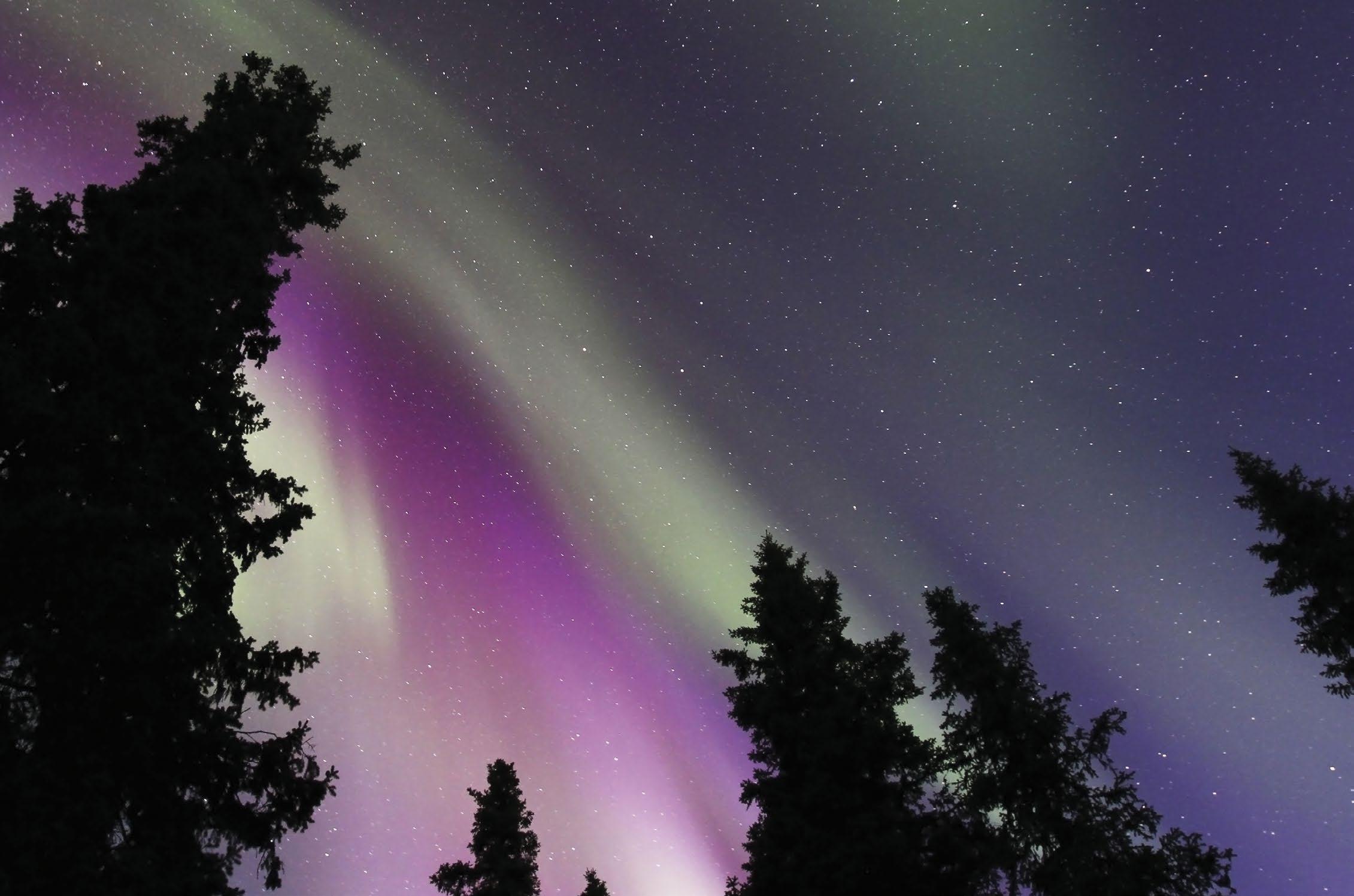











MORE THAN 150 STORES, RESTAURANTS AND CAFÉS


A vibrant 7 floor shopping centre with about 100 stores to shop for clothes, shoes, accessories, home decor, cosmetics and more. You can also choose between 50 places to eat and drink. What’s not to like?


STORES & SERVICES: Mon-Fri 10:00-20:00, Sat 10:00-19:00, Sun 12:00-18:00 FOOD & BEVERAGES: Mon-Fri 11:00-20:00, Sat 11:00-19:00, Sun 12:00-18:00 Urho Kekkosen katu 1 • kamppihelsinki.fi





Welcome to the Metropolitan area 8 Everything you ever wanted to know about Finnish baseball 10 Finnish nature is ruthless 14 Map of metropolitan area 16 Hotels & hostels providing Metropolitan Times 18 ARS22 at Kiasma celebrates living encounters between art and people 21 Test which museum is right for you 26 The most important hotel employee – Column by Minna Lindgren 28 Metropolitan Times Magazine for Visitors Issue 1/2022 Summer www.metropolitantimes.fi
2489-2688 (print)
2669-8277 (online) Published by Mobile-Kustannus Oy Brahenkatu 14 D 94 FI-20100 Turku, Finland
in chief
Lipasti Graphic design & layout
Mero
Knok Oy
Jaakonkoski Sales manager Raimo Kurki raimo.kurki@mobilekustannus.fi Tel. +358 45 656 7216 Sales Marja Hakomäki Printed by Newprint Oy Cover Oodi's summer
.
Jussi Hellsten / City of Helsinki Kallio
Partners
Metropolitan Times map application for mobile phones and tablets: m.metropolitantimes.fi. The magazine is available in selected hotel and hostel rooms and lobbies in Espoo-Helsinki-Vantaa metropolitan area (see pages 16–17 and 18). The next issue will be out in November 2022. 21 14 10 26 6
CONTENTS
ISSN
ISSN
Editor
Roope
Petteri
Mainostoimisto
Publisher Teemu
terrace
Photo:
church. Photo: Omar El Mrabt / Helsinki
Girls on the street. Photo: Mariia Kauppi / Visit Finland Cathedral in sunset. Photo:
Mikko Huotari / Visit Finland Minna Lindgren. Photo: Jarkko Mikkonen
Korkeasaari Zoo
Korkeasaari Zoo is uniquely located on an island in the Baltic Sea. It’s just outside the city, you can literally see the Helsinki Cathedral from the zoo. It takes only 20 minutes to get here by local bus (no 16) from the Railway Station or a ferry from the Market Square during summer. Meet animals from the Himalayas, Siberia, Mongolia, Finland and the Asian rainforest – more than 150 species in total – while enjoying the silence and peace of the Finnish nature surrounding you.
Animals who are not afraid of cold
It is not a coincidence that the snow leopard’s only bare spot is the tip of its nose or that the snowy owl is white and fluffy. Animals have their ways to adapt to cold climates. At Korkeasaari Zoo we want our large animals to enjoy outdoor life throughout the year. Therefore, instead of seeing a giraffe or a hippo, you will see a wolverine, a forest reindeer, an Amur tiger and a Bactrian camel – all species adapted to extreme winter. On a windy day, follow suit from the animals and dress warmly. If it gets too chilly, take refuge in the warm tropical houses.
To visit Korkeasaari Zoo is to act for nature
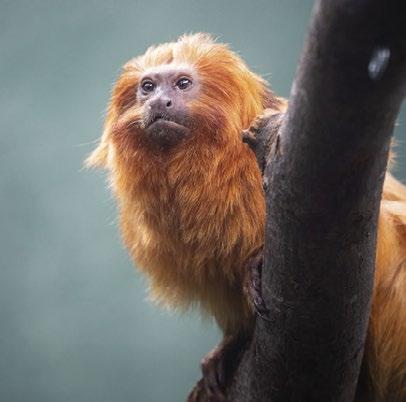
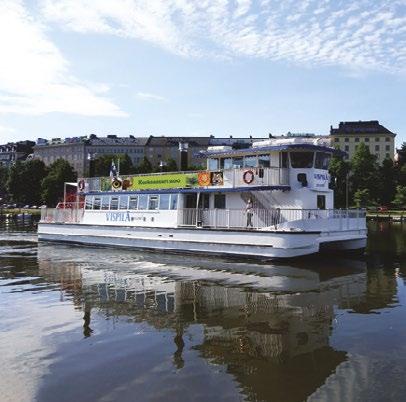
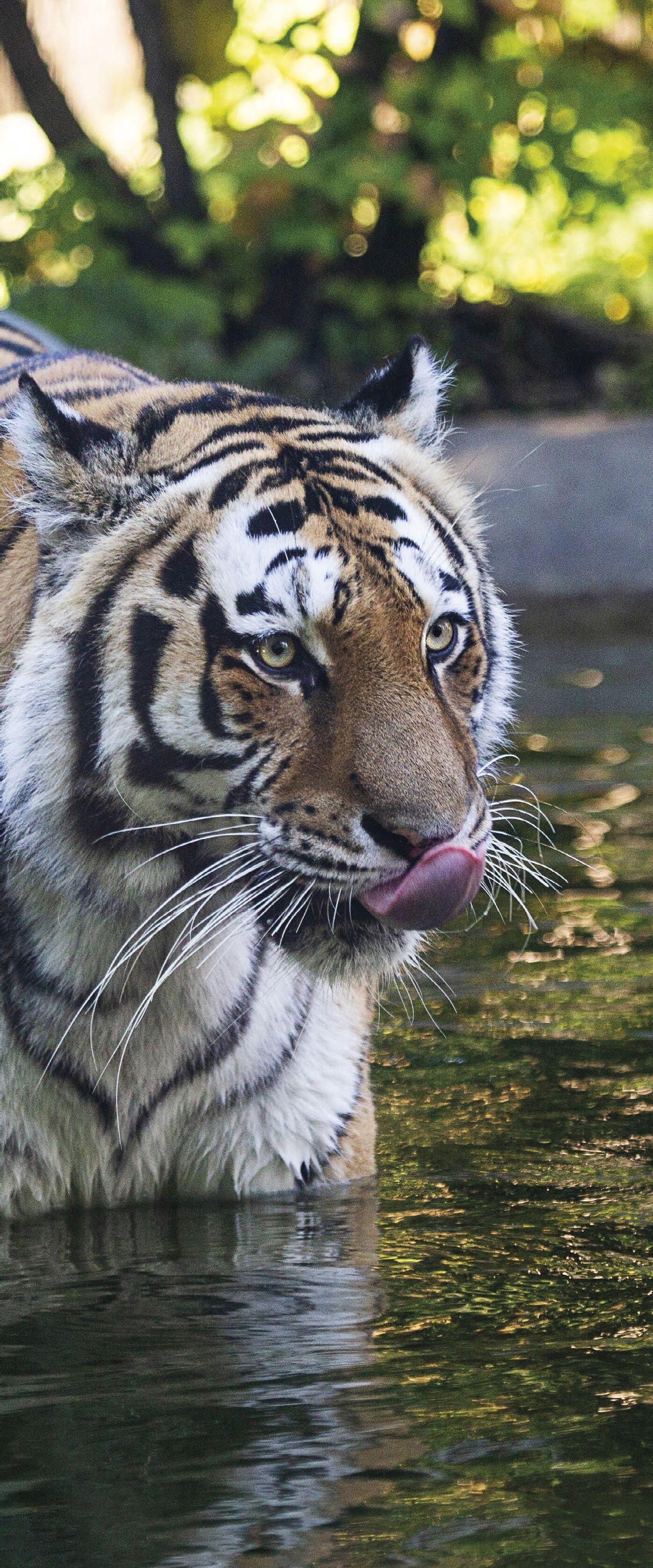
Our mission is to conserve biodiversity. We want our visitors to value the importance of biodiversity and aim to motivate behavior change for conservation. In cooperation with other modern zoos, we breed endangered species to maintain a healthy and viable zoo population. Zoo populations have already saved various species from extinction. In order to support our mission in protecting wild animals and their natural habitats, we donate annually to various field conservation projects. Bring your coins and donate to the project of your choice. By visiting Korkeasaari Zoo, you support our work as defenders of biodiversity and endangered species.
From zoos to the wild
www.korkeasaari.fi
Do you know what European bison, bearded vulture, European forest reindeer and Przewalski´s wild horse have in common? All these species have been lost from the wild locally or globally, and brought back from extinction with the help of zoos, Korkeasaari Zoo among them.
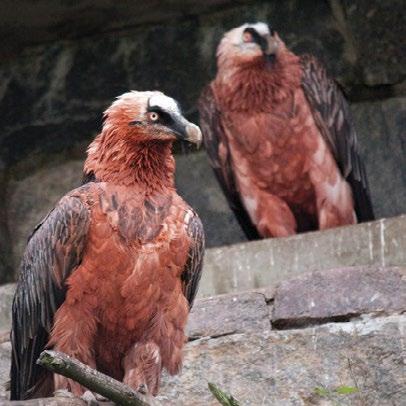 Korkeasaari Zoo is open all year round daily from 10 am. There are restaurants and kiosks on the island, or you can bring your own food and have a picnic. You’ll find a free map at the entrance to guide you through your visit.
Korkeasaari Zoo is open all year round daily from 10 am. There are restaurants and kiosks on the island, or you can bring your own food and have a picnic. You’ll find a free map at the entrance to guide you through your visit.
– near the city but far from the rush
Welcome to the Metropolitan area
Urban culture and experiences in nature!
Located just a metro ride away, Espoo is a vital city, offering each and every one interesting things to see and experience.
Espoo has a lot to offer for those craving culture: visit a fascinating museum in Exhibition Centre WeeGee or participate in one of our city’s many events.
Large natural areas are characteristic of Espoo: seashores, the archipelago, the wilderness in nature reserves and the waterways of the lake highlands. The cultural landscapes, constructed environments and natural areas of Espoo are like Finland in miniature.
The special feature of Espoo is an urban structure that relies on five different centres. Four of them along the railway, and the fifth soon to be connected to the metro line.
Espoo is growing fast, and the growth is focused strongly around the metro stations. Espoo has twice been ranked as the most ecologically, economically, socially and culturally sustainable city in Europe. We have also been invited to act as one of the pioneering cities implementing the United Nation’s 2030 Agenda for Sustainable Development, in cooperation with Aalto University and companies. We want to ensure that our city will grow in a manner that will provide future generations with equal or better living conditions than those enjoyed by us.
Welcome to Espoo!
Jukka Mäkelä
 mAyor of eSpoo
mAyor of eSpoo
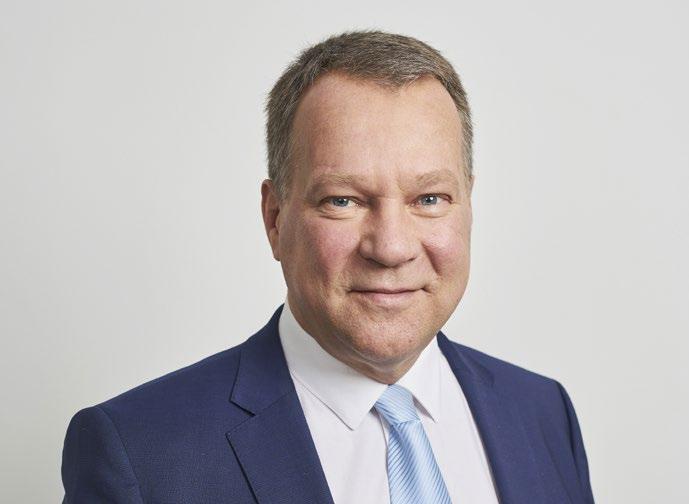
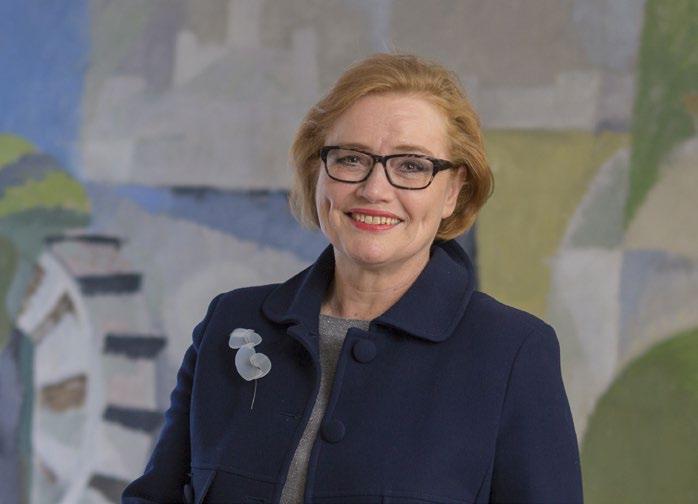
Dear reader,
Warm welcome to Helsinki! You have made an excellent choice on your travelling destination. Of course, from my point of view, Helsinki is one the most exciting and interesting cities in the world and I am delighted for your choice to experience the many adventures our capital has to offer.
The global pandemic may have temporarily affected our travelling habits, but as we move forward, the longing for new thrilling experiences has become stronger than ever. Helsinki is creative, safe and a unique place where bubbly urban life meets fascinating, diverse nature.
Helsinki lives and breathes throughout every season of the year. Sometimes this means sun or snow – other times it means slush and rain. But don’t you worry – Helsinki is always fun, exciting and provides unexpected experiences regardless of the season.
I can assure you every day is a new adventure in Helsinki and I can’t wait for you to explore our best features! We have collected all the best tips for your stay into one service: myhelsinki.fi.
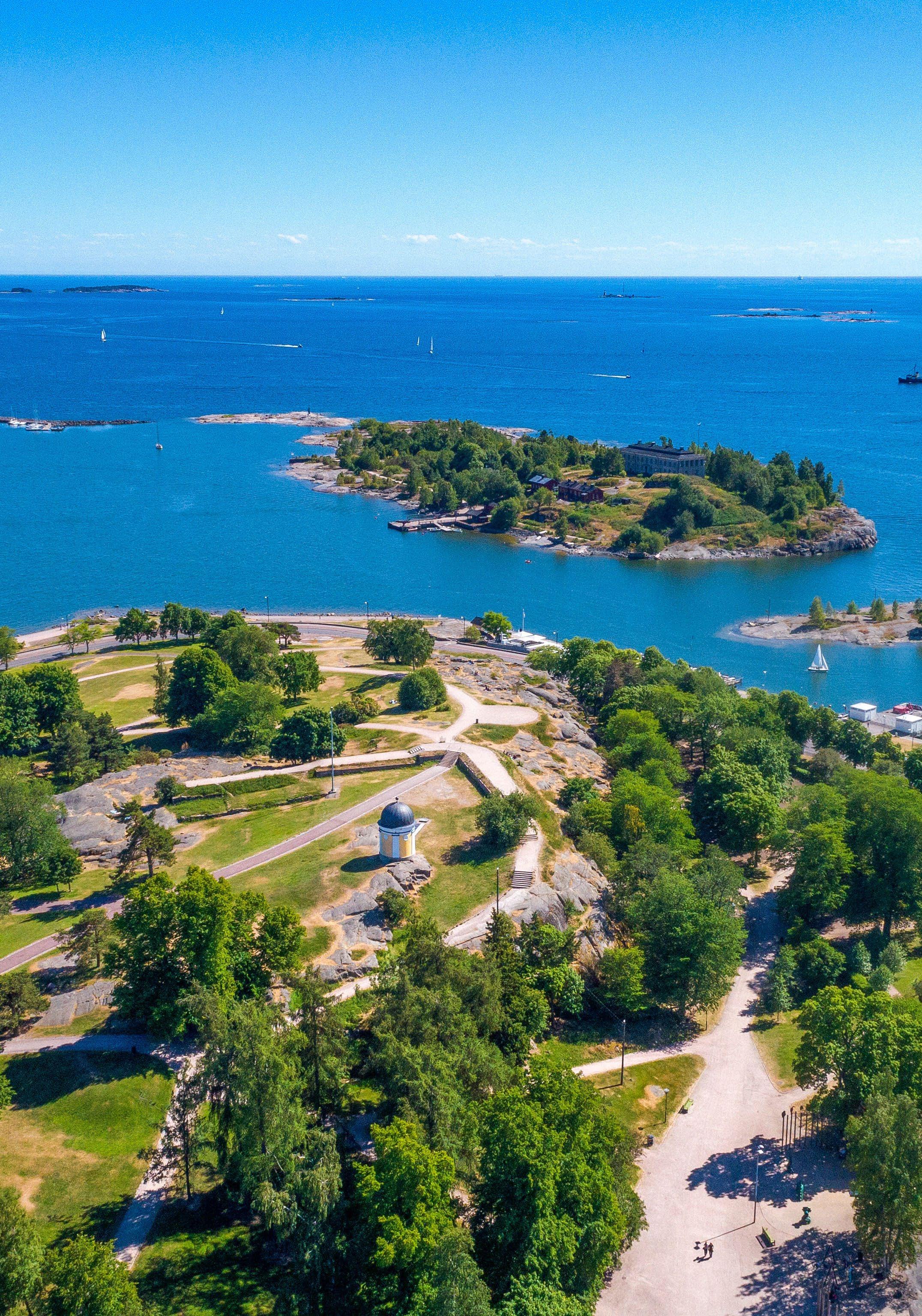
Enjoy your stay – and I hope to see you back soon!
Juhana Vartiainen mAyor of helSinki
Vantaa of Innovations is open to new ideas
Vantaa welcomes everybody to develop the global city. Everyone is welcome to Vantaa! At the beginning of 2022 Vantaa released its new strategy “Vantaa of Innovations”. The city’s vision is: brave, relaxed, and attractive Vantaa is a forerunner of sustainability.
Last year we were nominated a European Rising Innovative City, which was due to, among other things, our rapid growth, as well as our widescale development of carbon neutrality, social innovations, and digital solutions. We will continue our journey on this path, as guided by our new strategy: bold innovations will move our city forward.
This year we launch a new innovation competition that seeks ideas to develop the urban city, as well as solutions for the cities’ challenges. We firmly believe that innovations will help to boost the robust growth we have experienced. In the course of a few decades, Vantaa has grown from a small rural municipality into the fourth biggest city in Finland where almost 120 languages are spoken.
You are very welcome to take part in this new competition! We hope to receive ideas that will help the residents’ everyday life and better meet the challenges posed by, for example, heavy growth. The rules, schedule, and prizes of the competition will be announced in more detail at a later stage.
We at Vantaa want to keep building a better future. Join in the Vantaa of Innovations!
Ritva Viljanen mAyor of vAntAA
photo: SAkAri mAnninen
photo: olli urpelA
photo: Jetro StAvén
photo: o m A r e l m r A bt / h el S inki pA rtner S
HELSINKI ESPOO
8
VANTAA
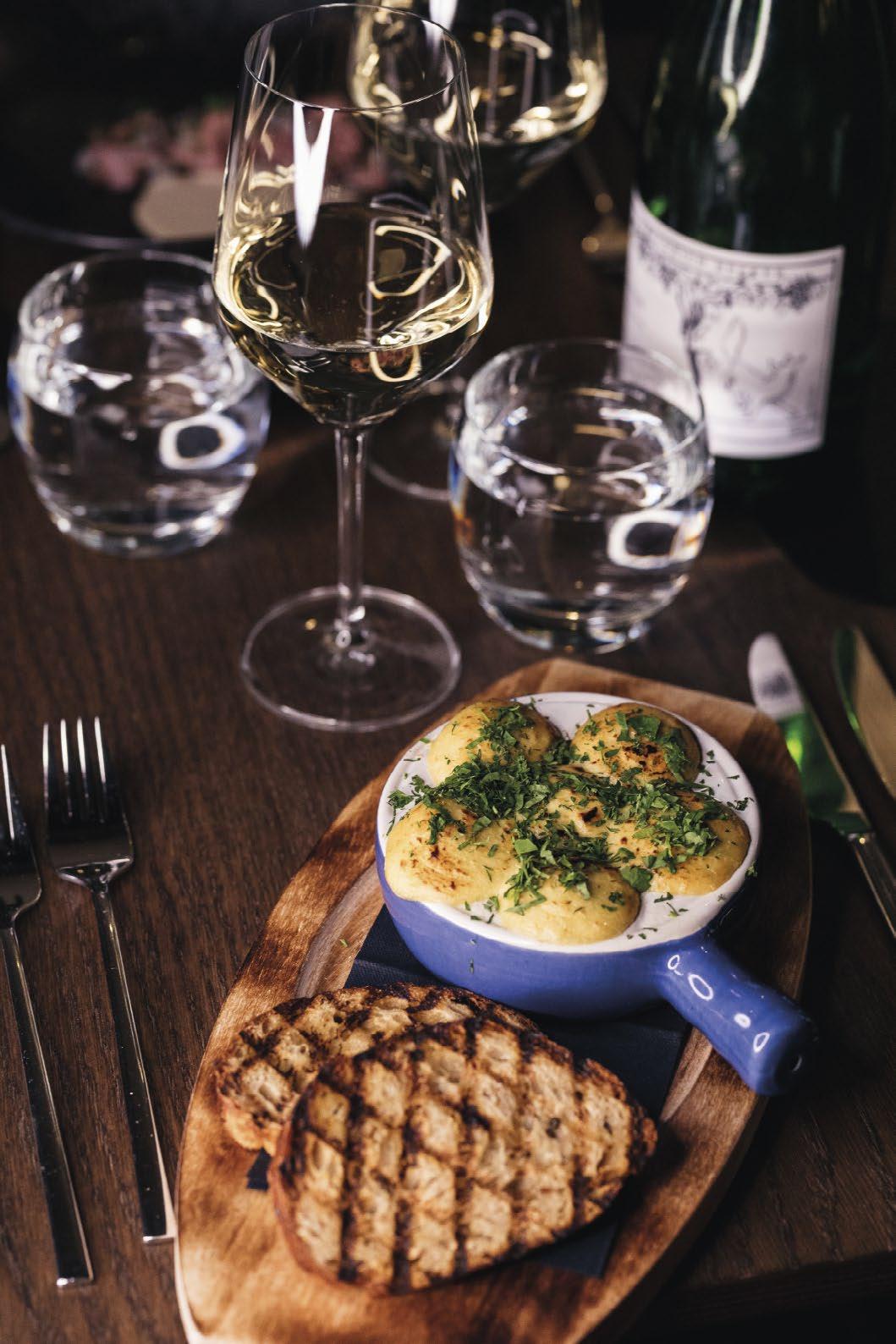

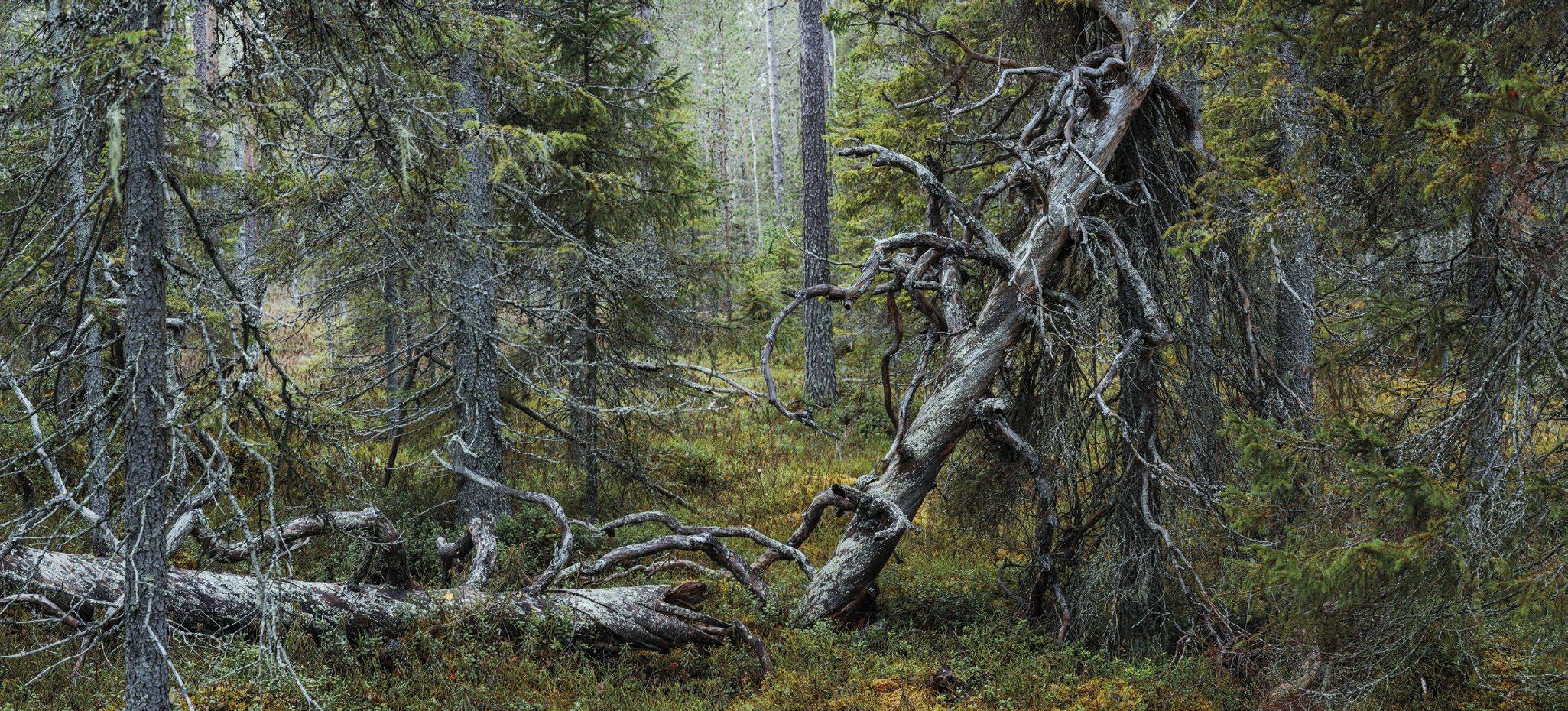
+358 45 6789 045 | reservations@theglass.fi | theglass.fi @theglasshelsinki | Kämp Gallery K1 floor, Mikonkatu 1 Google 4,9/5 Dinner Booking 5,8/6 Facebook 5/5 photo: @angelinilmast Seasonal Flavours from Nordic Bistro in the heart of Helsinki Artesan Wines Classic Cocktails Impressive Rum Selection The Glass 200x142mm Metropolitan Times_2022.pdf 1 5.5.2022 14.44 Kämp Galleria, Mikonkatu 1, Helsinki Open Mon–Fri 11–20, Sat–Sun 11–18 12 € / 6 € / Museum Card The World Through Photography 10 JUN –2 OCT 22 RITVA KOVALAINEN
& SANNI SEPPO: FORESTS OF THE NORTH WIND
Finnish baseball
Pesäpallo, or Finnish baseball, is the Finnish national sport, with a history full of colorful characters, grand emotions, and scandals. In the future, there may even be tea breaks.
Written by Matti Mäkelä
translated by OWen F. WitesMan
Based on rock paintings, ancient mammoth hunters were already playing a game like baseball in Finland at the end of the ice age. That would be a nice way to start the story of pesäpallo, but in reality, the history of the sport is much shorter and much less connected to any mythical roots in Finnishness.
The father of the sport was Lauri Pihkala, the Grand Old Man of Finnish sports, who developed the rules of pesäpallo in the 1910s, modeled on American baseball and a game called kuningaspallo (“kingball”) played earlier in Finland. And kuningaspallo wasn’t born in a vacuum either—in the background there were many other ball games where the goal was to hit a ball, run, catch, and tag out opponents. The closest equivalents of kuningaspallo were the Swedish långboll, the German Schlagball and the Russian laptá.
Strictly speaking, pesäpallo is a case of cultural appropriation of pan-European and American traditions. The name of the sport is even a direct translation from
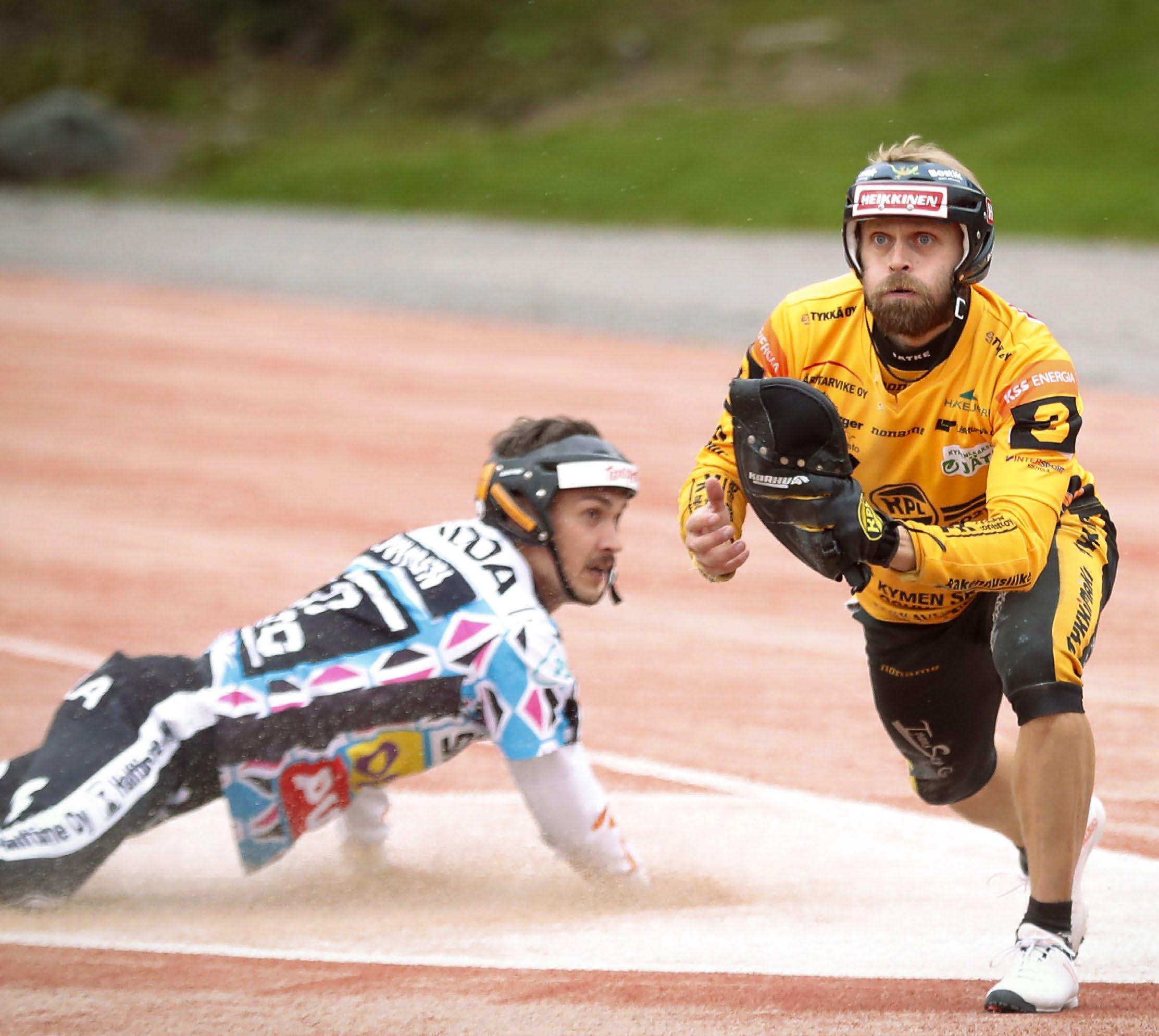
American pastime.
their
Everything you ever wanted to know about
the
Despite
photo: kA lle pA rkkinen / l ehtikuv A 10
Matti Latvala of KPL from Kouvola (right) is on the second base trying to put out Timo Torppa of Manse from Tampere in Finnish baseball finals on 21st September in 2021. Manse won the best-of-five finals in the fifth game.
similarities, there are also many differences between baseball and pesäpallo, the biggest of which is that in pesäpallo, the ball is pitched upwards, not towards the batsman as in baseball and cricket. This difference is apparently due to the fact that Pihkala, who found baseball boring (Homer Simpson also made this observation while trying to watch his favorite sport during his beer strike) wanted more action in the game. Charlie Brown might also enjoy the pitching style in pesäpallo, since he would never have to worry about another line drive.
The firSt officiAl gAme of pesäpallo in its current form was played in Helsinki on November 14, 1920. Thanks to the lobbying work of Pihkala and other activists, the game spread rapidly and became known as the national sport of the young nation. In the 1920s and 1930s, the game was particularly popular in schools and civil guard units (a voluntary national defense organization active from 1918 to 1944).

Finland, which had just become independent, was a country divided by the wounds of the Civil War of 1918, and the reputation of pesäpallo as a sport from “white” (vs “red”) Finland prevented the wider adoption of the sport by the working-class sports movement until after the Second World War. Similarly, Swedish-speaking Finns initially shunned the sport as too connected to Fennoman ideology.
Pihkala’s own background and worldview also influenced the reputation of pesäpallo. Pihkala was ardently nationalistic and belonged to the White Army during the Civil War. Later it was alleged that he was involved in activities during the war that would now likely be considered war crimes. After the war, Pihkala served as the sports director of the civil guards and promoted the sport as a form of training especially suitable for soldiers. According to Pihkala, the sport was not suitable for women, for whom he recommended tennis, swimming and figure skating.
Since the Second World WAr, the position of pesäpallo has stabilized, and practically every Finn has played the sport at least during school physical education classes (however, due to the difficulty of the sport, that hasn’t always been a good thing, as can be seen from many recollections of childhood trauma related on the Internet).
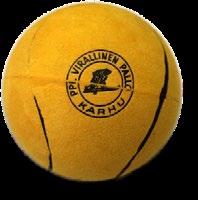




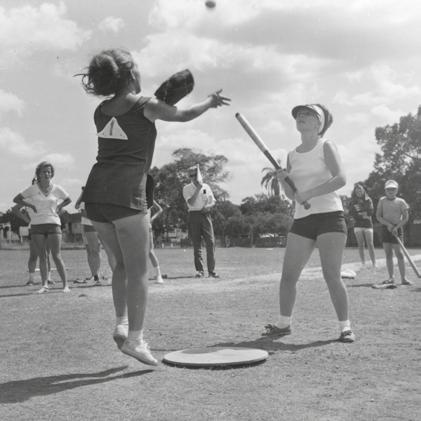
Pesäpallo continues to divide the country but for geographical rather than ideological reasons. After ice hockey and football, pesäpallo is the third most watched team sport in Finland, but its popularity is concentrated in the countryside and small towns. But in the sport’s core areas, its popularity is incredibly huge. For example, the average number of spectators for the team in the town of Vimpeli is more than 2,000, with a spectator record of 5,216. These numbers won’t
seem high unless you know that the population of Vimpeli is only 2,756. A similar level of baseball enthusiasm in New York City would mean that Yankee Stadium would need to have 15 million seats.
However, in the 1990s, the situation seemed to be changing. The all-time crowd record for the top pesäpallo series was made in 1997, when the total number of spectators hit almost half a million. Helsinki had got its own major league team a year earlier, sponsors had taken notice, and pesäpallo seemed like it might become a serious challenger to hockey and football.
But two years later, everything was different. The Helsinki-based club Kaisaniemi Tigers had been successful athletically, but financially the club’s two-year story was a disaster that ended in bankruptcy at the end of the 1998 season. In the same year, the reputation of pesäpallo was also tarnished by a match-fixing scandal involving a large number of players as well as management and other staff from different teams. Police eventually investigated 460 people, of whom 30 were convicted. The scandal lingered in the headlines, damaging the reputation of the sport and reducing its popularity.
Over the lASt decAde, the popularity of pesäpallo has risen again and small indications of urbanization have even been seen again: the Pesäpallo World Cup was held in 2017 in Turku, and the Tampere club Manse PP took the Finnish championship in 2021.
Internationally, pesäpallo is an extremely small sport, although it has spread to Sweden and Australia with the help of Finnish immigrants. The World Cup began in 1992, with Finland, as expected, taking all the gold medals awarded. Second in the medal stats is Australia, where the World Cup has been played twice. The 2019 tournament was held in India, and for the first time, the traditional cricket countries of India and Bangladesh took top rankings. Interestingly, pesäpallo has not spread to these countries with migrants but through social media.
So what is the future of pesäpallo? Of course, there are big challenges for the sport. Competition for the interest of participants and spectators is intensifying all the time with new sports and forms of leisure. On the other hand, pesäpallo has a strong and committed fan base, and in a positive future scenario, the sport could first become the number one sport in Finland’s major cities and then maybe even an international success story. That would probably require rethinking the rules and practices of the sport; for example, acceptance could be promoted in cricket countries by adding tea breaks as part of the culture of the game. s
photoS: muSeum centre of finlAnd
A similar level of baseball enthusiasm in New York City would mean that Yankee Stadium would need to have 15 million seats.
Above: A game of pesäpallo in Brisbane, Australia in 1969.
11
photo: olAvi koivukAngAS / muSeum centre of finlAnd
INTERNATIONAL CASINO GAMES & SPORTS BAR CASINO HELSINKI WELCOME
READ MORE ABOUT RESPONSIBLE GAMING casinohelsinki.fi
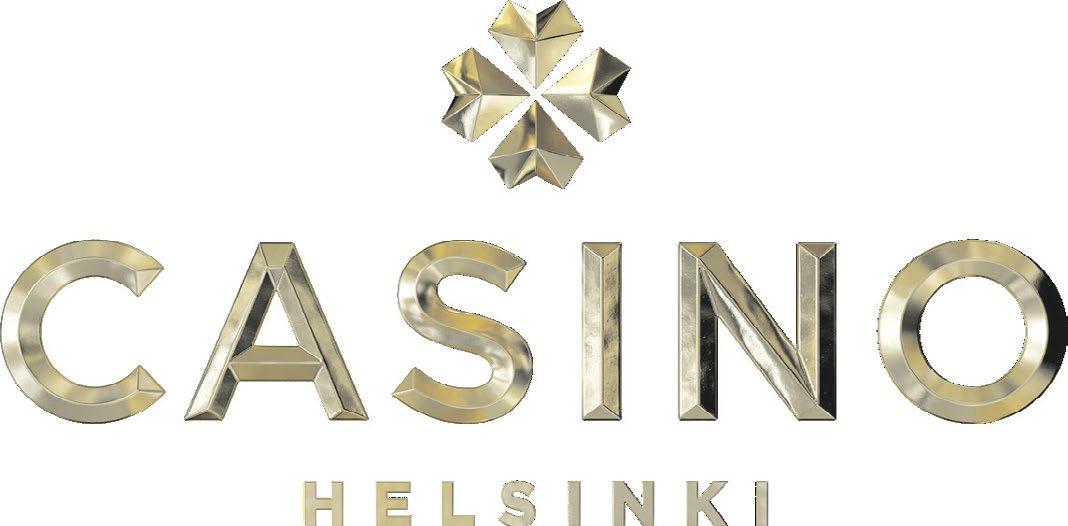

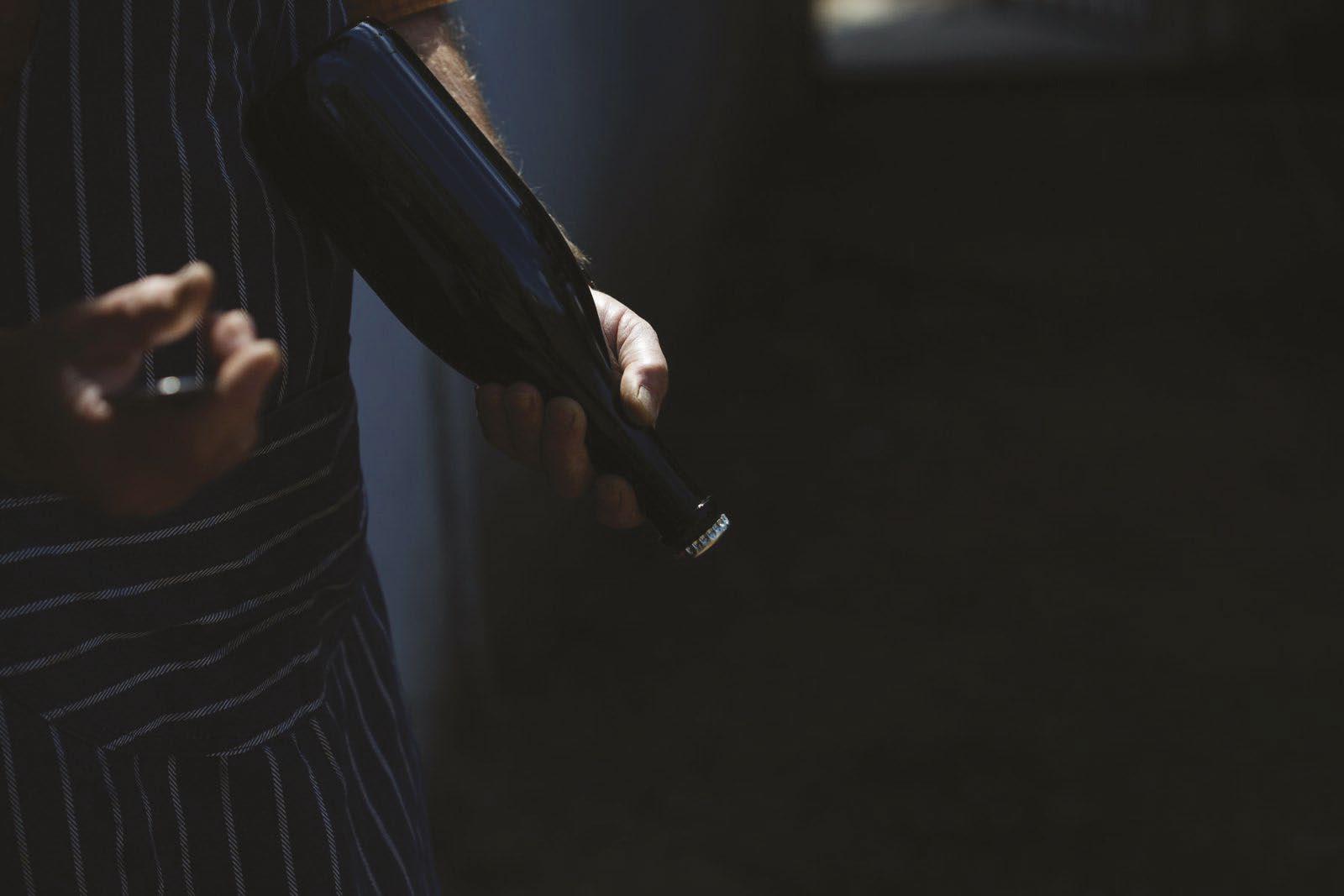
MIKONKATU 19 | ID REQUIRED | FREE ENTRY | OPEN SUN-THU 15-02 & FRI-SAT 15-04

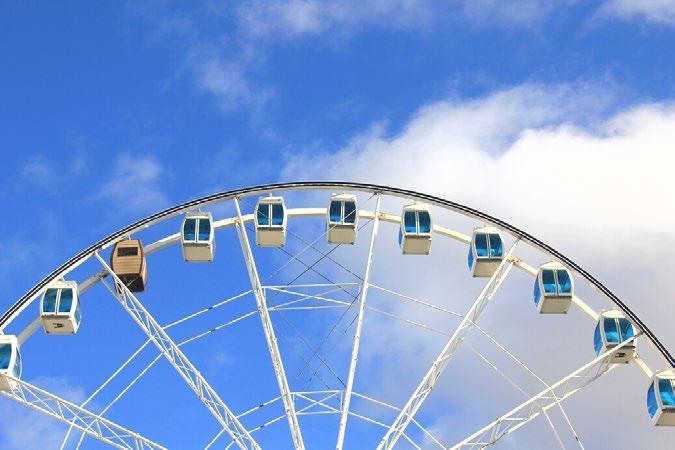
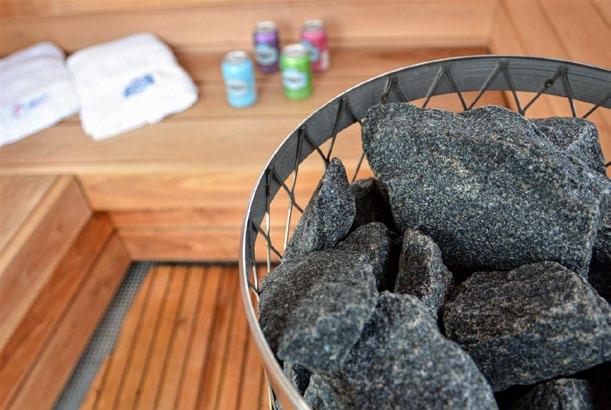



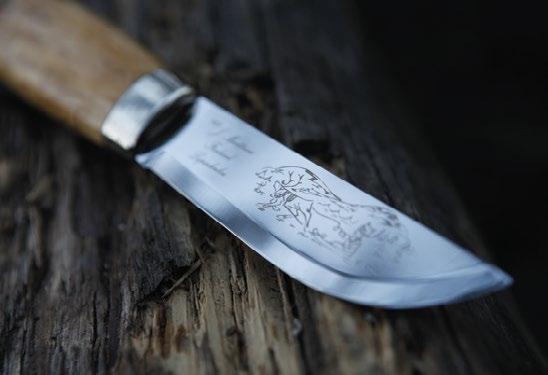
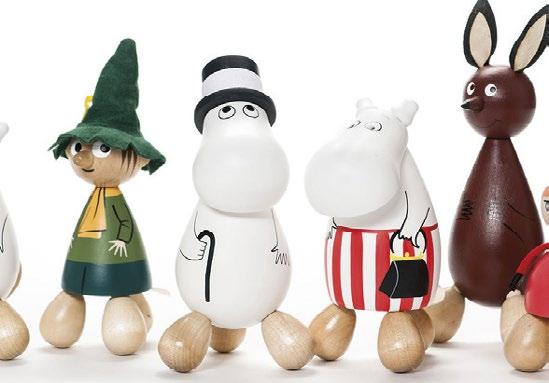

E N J O Y T H E C I T Y O F H E L S I N K I U P F R O M 4 0 M E T E R S S k y W h e e l H e l s i n k i o f f e r s y o u a m a z i n g v i e w s o v e r t h e s e a , c i t y a n d s u r r o u n d i n g i s l a n d s C O M E A N D H A V E A R E G U L A R R I D E O R T R Y O U R S P E C I A L E X P E R I E N C E S V e u v e C l i c q u o t V I P E x p e r i e n c e O r i g i n a l S k y S a u n a K A T A J A N O K A N L A I T U R I 2 , 0 0 1 6 0 H E L S I N K I W W W . S K Y W H E E L . F I Eteläesplanadi 24, HELSINKI www.manhattansteakhouse.fi CHARCOAL GRILL EXQUISITE WINE AND CRAFT BEER LIST GROOVY MUSIC FRIENDLY STAFF LAID BACK ATMOSPHERE FREE WIFI WE ALSO SERVE LUNCH S T E A K H OUSE SINCE 1986 THE OLDEST SOUVENIR SHOP IN HELSINKI OPPOSITE THE TEMPPELIAUKIO CHURCH Knitwear Finnish knives Reindeer hides Handicrafts Målerås crystal Souvenirs – Since 1980 –ANNE’S SHOP Fredrikinkatu 68, 00100 Helsinki Tel. +358 9 445 823 OPEN EVERY DAY facebook.com/Annensoppi
Finnish nature is ruthless
There may not be lions or poisonous scorpions in Finland, but we do have wild summer beasts.
Bears
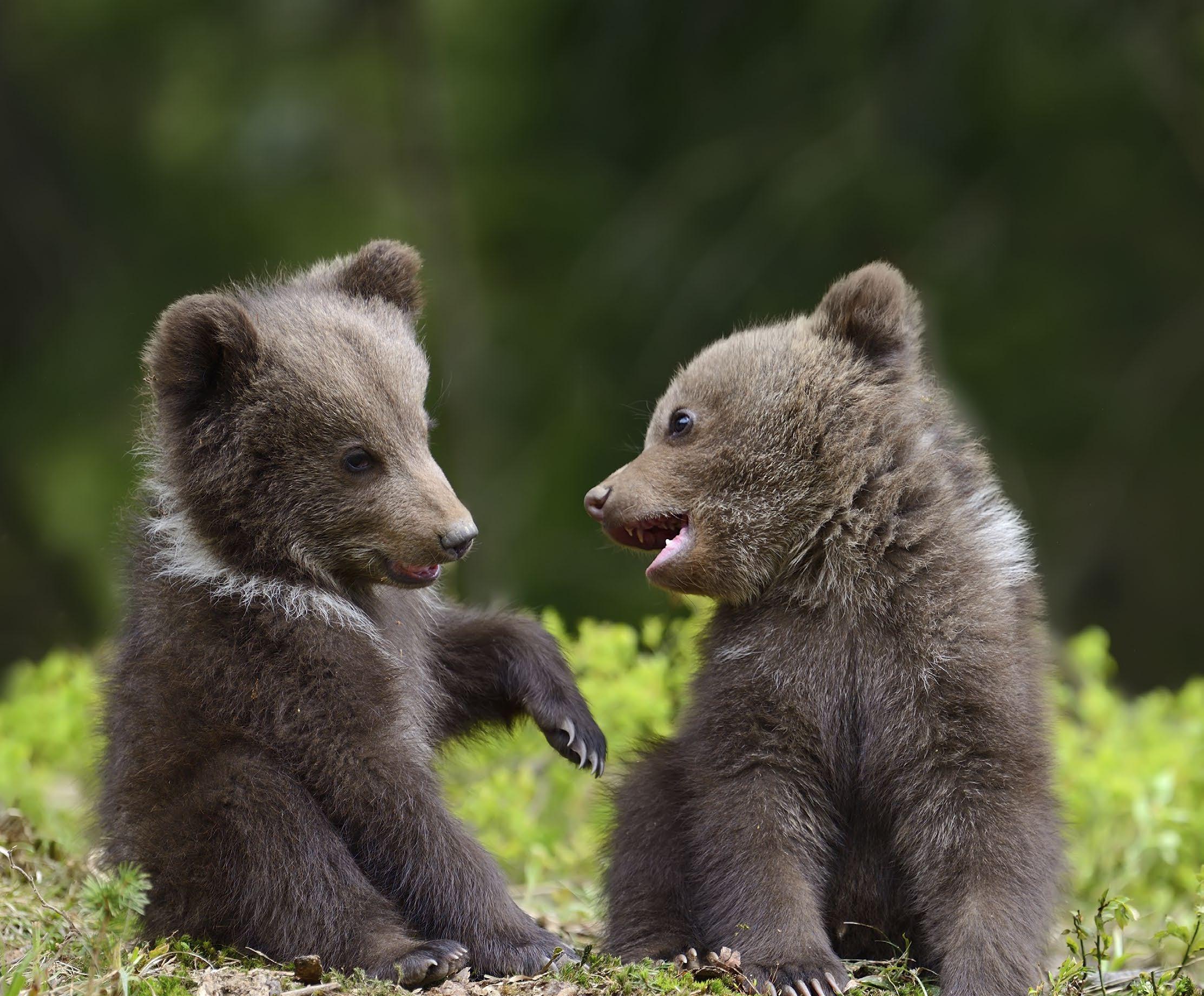
Finland’s largest predator is usually encountered in the forest, although sightings are extremely rare. There are about 2,500 bears in Finland, with most of them in Lapland or on the eastern border. The traditional way to protect yourself from them is mooning: if a woman was standing in the cattle pasture with her lower body bare, pointing her bottom into the woods, bears wouldn’t come around looking for trouble. Sadly, this beautiful old tradition is a rapidly vanishing folk art.
Karhu (Finnish for bear) is also the name of one of the most popular beers in Finland, so bears can also be enjoyed in urban settings.
Wolves
There are about three hundred wolves in Finland. The last time one harmed a human was in 1882, but nevertheless, we have conversations every year about whether we should get rid of them entirely. In any case, they range all the way into southern Finland, especially the
southwestern region. Running into a wolf isn’t likely, but in the winter you can see their tracks, although usually those are just from the dog next door.
The Finnish national basketball team is called the Wolf Pack. This name comes from the fact that a wolf can survive on its own but is even stronger as part of a group.
Lynxes

The only wild feline predator in Finland is the lynx. They live all over the country, although there are only a couple of thousand of them. The lynx is a timid animal, so it is best seen on the roadside after having been killed by a speeding car. The Finnish lynx grows up to 140 centimeters long and weighs a maximum of 25 kilos.
Tampere has a hockey club of the same name, which comes from the coat of arms of the province of Häme, which features a lynx. When the Ilves hockey club was founded in 1931, lynxes had been hunted nearly to extinction. In 1962, the species was protected, and the population has since recovered.
photo: e nv A to
Brown bear cubs.
14
Written by rOOpe lipasti translated by OWen F. WitesMan
Wolverines
An extremely endangered scavenger that lives in Lapland, with only about four hundred surviving. The name comes from the animal’s outrageous table habits: it “wolfs down” its food at a terrible speed, swallowing large pieces of meat whole.

Sea eagles
The sea eagle is the largest bird in Finland, with a wingspan of up to 240 centimeters. In the archipelago, you can see them flying in the sky, but it isn’t a good idea to get much closer than that.
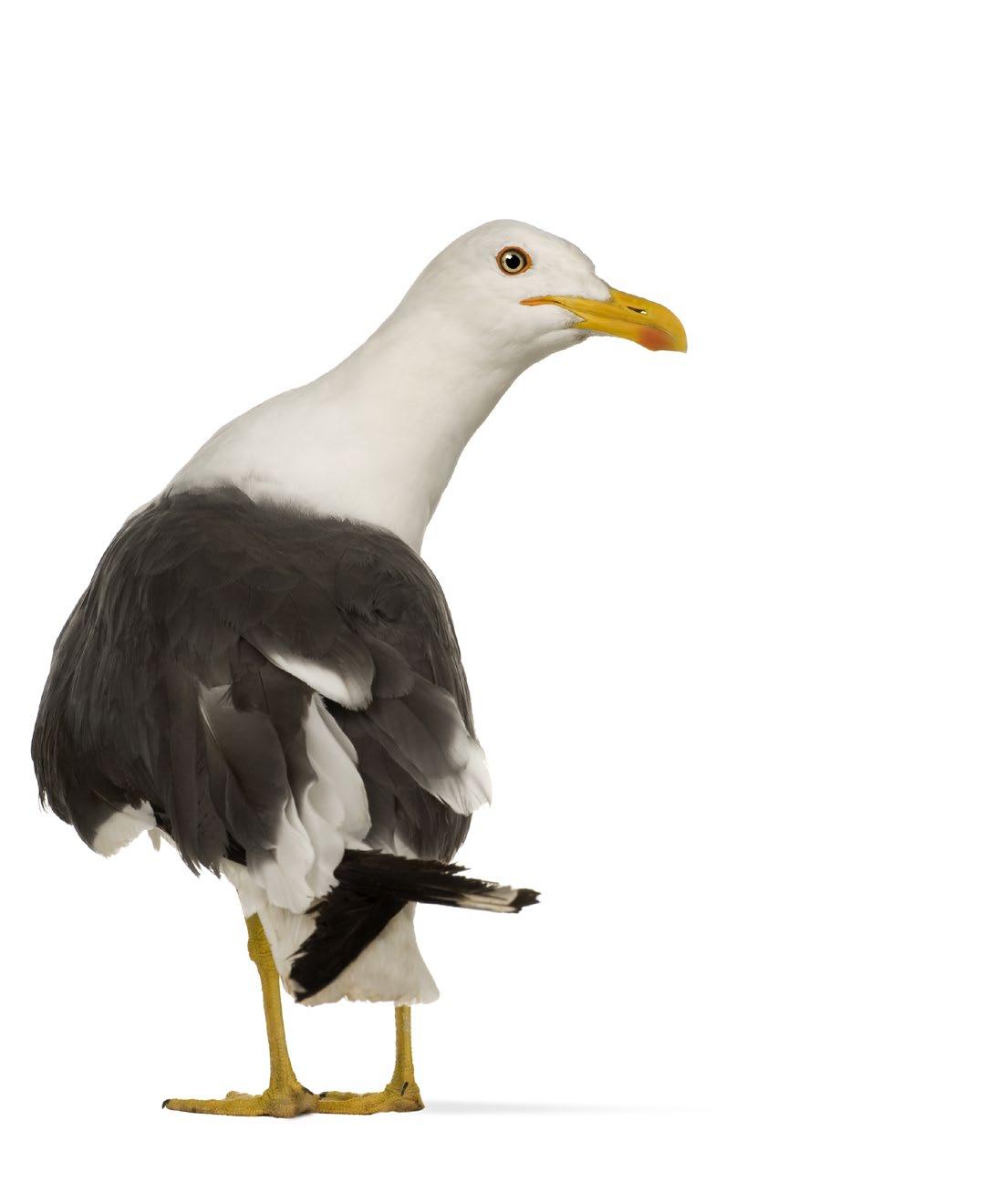
Gulls
Especially dangerous for holidaymakers enjoying ice cream or other treats outside in the square. The arrogance of seagulls is only matched by their cunning, so tourists should stay vigilant to avoid being robbed by this terrible beast. There are an especially large number of these mafiosi of the bird world in the Helsinki Market Square.
However, the Finnish word for them, lokki, is also used to mean a person who scrounges off others.
Mosquitoes
Despite its small size, a frightening adversary in the Finnish summer. There are fewer of them in the cities, but as soon as you move into the woods or, especially, to a summer cottage, their armies attack. Mosquitoes suck blood and can smell out precisely which party guest they most want to drink dry. In all likelihood, it’s you.
Mosquitoes are also skilled in psychological warfare: when you go to sleep, one is usually hiding in your room and will begin whining the moment you fall asleep. Mosquitoes are surprisingly intelligent, which is why it doesn’t help much to get up and turn on the lights to hunt down your tormentor. It will just hide and then start again once conditions are more favorable again.
If for some reason you happen to kill the troublemaker, the commander of the mosquito army will have left a backup in the room, who will continue the torture. You might think that if you give up and let it drink its fill, the problem will be solved, but that is not the case, since the aforementioned backup will be there to take over.
RUNNING INTO A WOLF ISN’T LIKELY, BUT IN THE WINTER YOU CAN SEE THEIR TRACKS, ALTHOUGH USUALLY THOSE ARE JUST FROM THE DOG NEXT DOOR.
Goofy guys
Basically harmless middle-aged men on vacation who someone forgot on a riverboat, a restaurant patio or in a park. Goofy guys are drunk for about four weeks straight, that is for their entire summer vacation.
Identifying characteristics: dressed in ancient cargo shorts, stretched and worn-out t-shirt that barely covers belly, sandals (and socks) and sunglasses. His face will be red from the sun and swollen from the alcohol.
Goofy guys usually just grumble to themselves and are mostly innocuous but very tiresome. Paying attention to them is not a good idea because they tend to be clingy.
Blue-green algae
Blue-green algae isn’t an animal, but it is alive: cyanobacteria have become a regular guest on almost all Finnish shorelines at some point each summer. It forms a pea soup-like algae porridge in the water, which looks less than inviting to swim in. And you shouldn’t, because it’s toxic. It can cause rashes, nausea, diarrhea and lung problems. As with many other distress calls nature is sending up, Finland is mainly addressing this through adaptation: go swimming when there is no algae instead of treating the root cause, which is eutrophication.
Deer flies
The deer fly may be the most fearsome enemy in the Finnish natural world. On the plus side, it usually only appears in the fall: deer flies live in the woods and fly into your hair, drop their wings and set up residence so tightly that no renter from hell would be harder to evict. Deer flies are also almost impossible to kill. Even if you hit it with a hammer, it might survive. (Best to get it off your head before trying, though).
The Sun
When the temperature exceeds 24 degrees, Finns begin to melt. Work falls by the wayside, no one is able to sleep, no one does anything, and the air is filled with weeping and wailing and gnashing of teeth. The people who complain the most are the same ones who were dreaming all winter about summer and the sun coming back. When the temperature exceeds 28 degrees, a national emergency is declared, and instructions are given to the elderly that they should drink water if they’re hot. But when autumn arrives, we all remember how lovely summer was after all. s
photo: e nv A to photo: e nv A to
THE ARROGANCE OF SEAGULLS IS ONLY MATCHED BY THEIR CUNNING, SO TOURISTS SHOULD STAY VIGILANT TO AVOID BEING ROBBED BY THIS TERRIBLE BEAST.
15

YOU ARE HERE! Hotels providing Metropolitan Times are marked on the map with numbered red dots. The list of hotels can be found on page 18. PLEASE LEAVE THIS MAGAZINE FOR THE NEXT GUEST – THANK YOU! A MAP IN YOUR POCKET Download the free Metropolitan Times Map App www.metropolitantimes.fi © Helsingin, Espoon, Vantaan ja Kauniaisten kaupungit 2022 9 10 13 16 11 6 19 12 16
MAP OF THE METROPOLITAN AREA
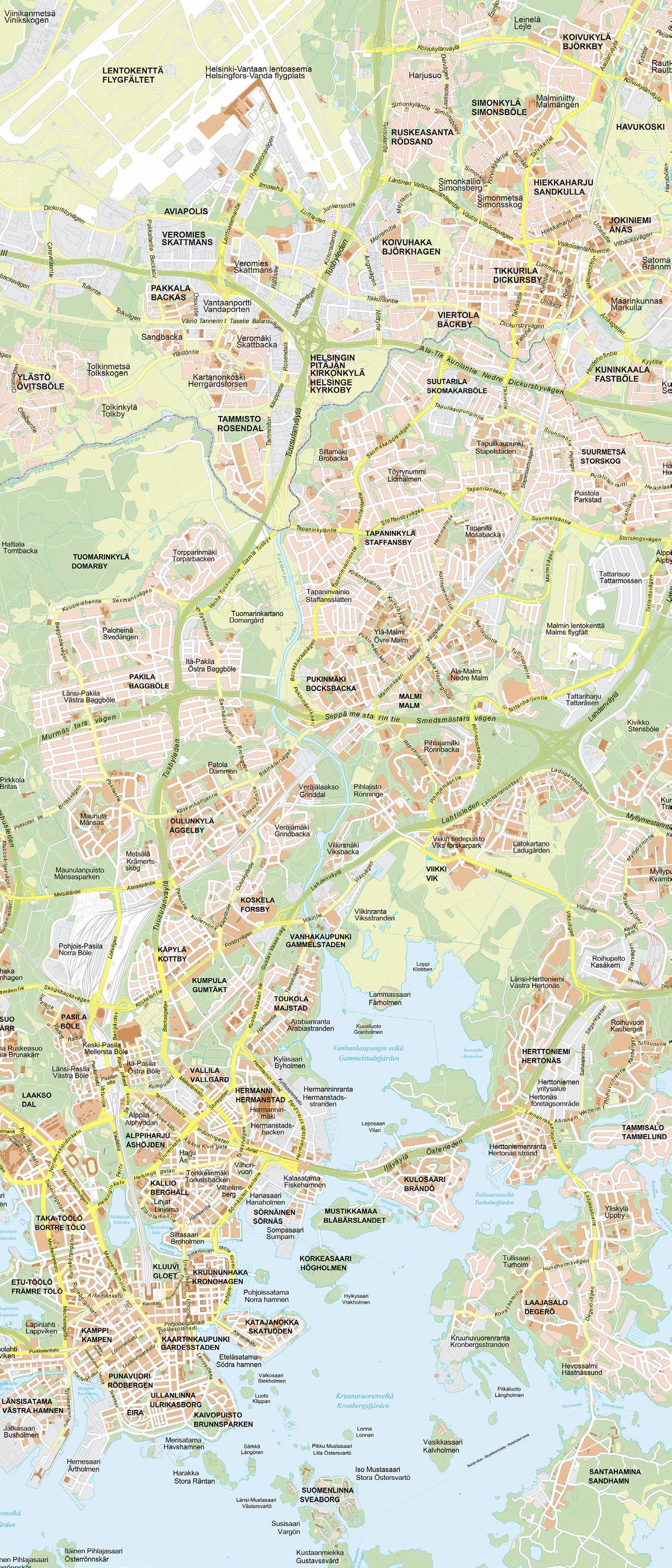
Helsinki
Helsinki became the capital of Finland in 1812. Back then, it was merely a village, although it was founded as early as 1550. Nowadays Helsinki has got 630,000 inhabitants and is the largest city in Finland. More information: myhelsinki.fi.
Espoo
The first mention of Espoo dates back to 1431, but it was not granted city rights until 1972. There are several centres in Espoo, of which Leppävaara is the largest. It is the second largest city in Finland with 275,000 inhabitants. More information: visitespoo.fi.
Vantaa
Vantaa is Finland’s fourth largest and the oldest city in the capital region: the first mention of it dates back to 1352. Helsinki Airport is located in Vantaa. Just like Espoo, Vantaa has several centres. Inhabitants: 235,000. More information: visitvantaa.fi.
Kauniainen
Kaunainen is the smallest commune in Finland with only six square kilometres and 9,600 inhabitants. It is surrounded by Espoo and renowned with its wealthy residents. More information: kauniainen.fi.
Greater Metropolitan Area
The metropolitan area and the municipalities or cities of Hyvinkää, Järvenpää, Kerava, Kirkkonummi, Nurmijärvi, Sipoo, Tuusula, Mäntsälä, Pornainen and Vihti form the greater metropolitan area with a population of about 1.4 million inhabitants. Together with the cities of Porvoo, Lohja and Riihimäki, the population of the greater metropolitan area rises to about 1,557,000.
Norway Sweden Estonia Latvia Lithuania Denmark Russia Finland 4 9 2 3 20 15 1 5 7 18 22 17 8 14 21 17
Metropolitan Times is available in these high standard Hotels & Hostels
01 breAk SokoS hotel flAmingo
Tasetie 8, 01510 Vantaa
Tel. +358 20 123 4605 www.sokoshotels.fi
02 clArion hotel helSinki
Tyynenmerenkatu 2, 00220 Helsinki
Tel. +358 10 850 3820 www.nordicchoicehotels.com
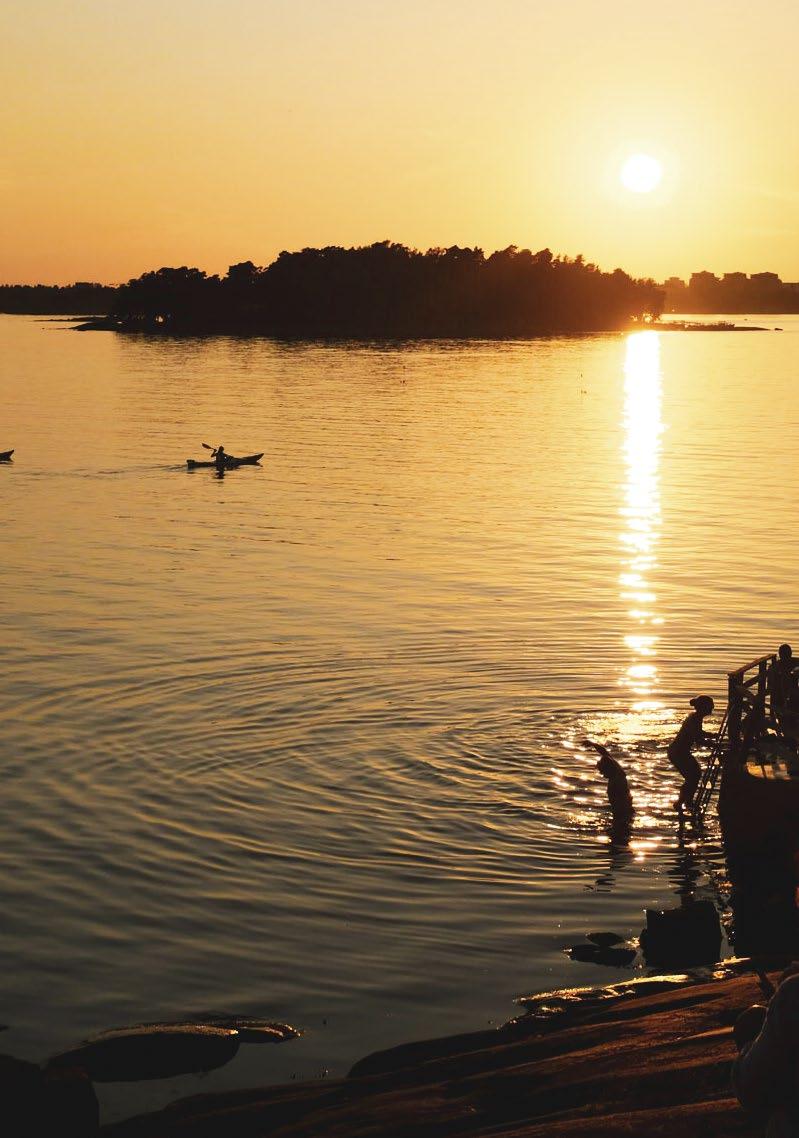
03 clArion hotel helSinki Airport
Tietotie 5, 01530 Vantaa
Tel. +358 10 850 3810 www.nordicchoicehotels.com
04 forenom ApArt hotel helSinki city
Eerikinkatu 24, 00180 Helsinki
Tel. +358 20 198 3420 www.forenom.com
05 hilton helSinki Airport
Lentäjänkuja 1, 01530 Vantaa
Tel. +358 9 732 20 www.hiltonhotels.com
06 hilton helSinki kAlAStAJAtorppA
Kalastajatorpantie 1, 00330 Helsinki
Tel. +358 9 458 11 www.hiltonhotels.com
07 hilton helSinki StrAnd
John Stenbergin ranta 4, 00530 Helsinki
Tel. +358 9 393 51 www.hiltonhotels.com
08 hotel Arthur
Vuorikatu 19, 00100 Helsinki
Tel. +358 9 173 441 www.hotelarthur.fi
09 hotel hAAgA centrAl pArk
Nuijamiestentie 10, 00320 Helsinki
Tel. +358 9 580 7877 www.hotelhaaga.fi
10 hotel korpilAmpi eSpoo
Korpilammentie 5, 02970 Espoo
Tel. +358 9 613 8411 www.korpilampi.fi
11 hotel mAJvik eSpoo
Majvikintie 1, 02430 Masala
Tel. +358 9 295 511 www.majvik.fi
12 hotel mAttS
Tynnyritie 1, 02230 Espoo
Tel +358 29 308 0440 www.hotelmatts.fi
13 hämeenkylän mAnor
Juustenintie 1, 01630 Vantaa
Tel. +358 10 540 8350 www.hameenkylankartano.fi
14 mArSki by ScAndic
Mannerheimintie 10, 00100 Helsinki
Tel. +358 9 680 61 www.scandichotels.fi
15 originAl SokoS hotel preSidentti
Eteläinen Rautatiekatu 4, 00100 Helsinki
Tel. +358 20 123 4608 www.sokoshotels.fi
16 originAl SokoS hotel tApiolA gArden
Tapionaukio 3, 02100 Espoo
Tel. + 358 20 123 4616 www.sokoshotels.fi
17 originAl SokoS hotel triplA
Fredikanterassi 1 B, 00520, Helsinki
Tel. +358 20 123 4611
www.sokoshotels.fi
18 rAdiSSon blu SeASide hotel
Ruoholahdenranta 3, 00180 Helsinki
Tel. +358 20 123 4707
www.radissonblu.com
19 ScAndic eSpoo
Nihtisillantie 1, 02630 Espoo
Tel. +358 9 435 20 www.scandichotels.fi
20 ScAndic grAnd mArinA
Katajanokanlaituri 7, 00160 Helsinki
Tel. +358 9 166 61 www.scandichotels.fi
21 ScAndic kAiSAniemi
Kaisaniemenkatu 7, 00100 Helsinki
Tel. +358 9 6899 9026 www.scandichotels.fi
22 ScAndic Simonkenttä
Simonkatu 9, 00100 Helsinki
Tel. +358 9 68 380 www.scandichotels.fi
photo: mA rii A kA uppi / v i S it f inl A nd
18
WELCOME TO LAKE TUUSULA!

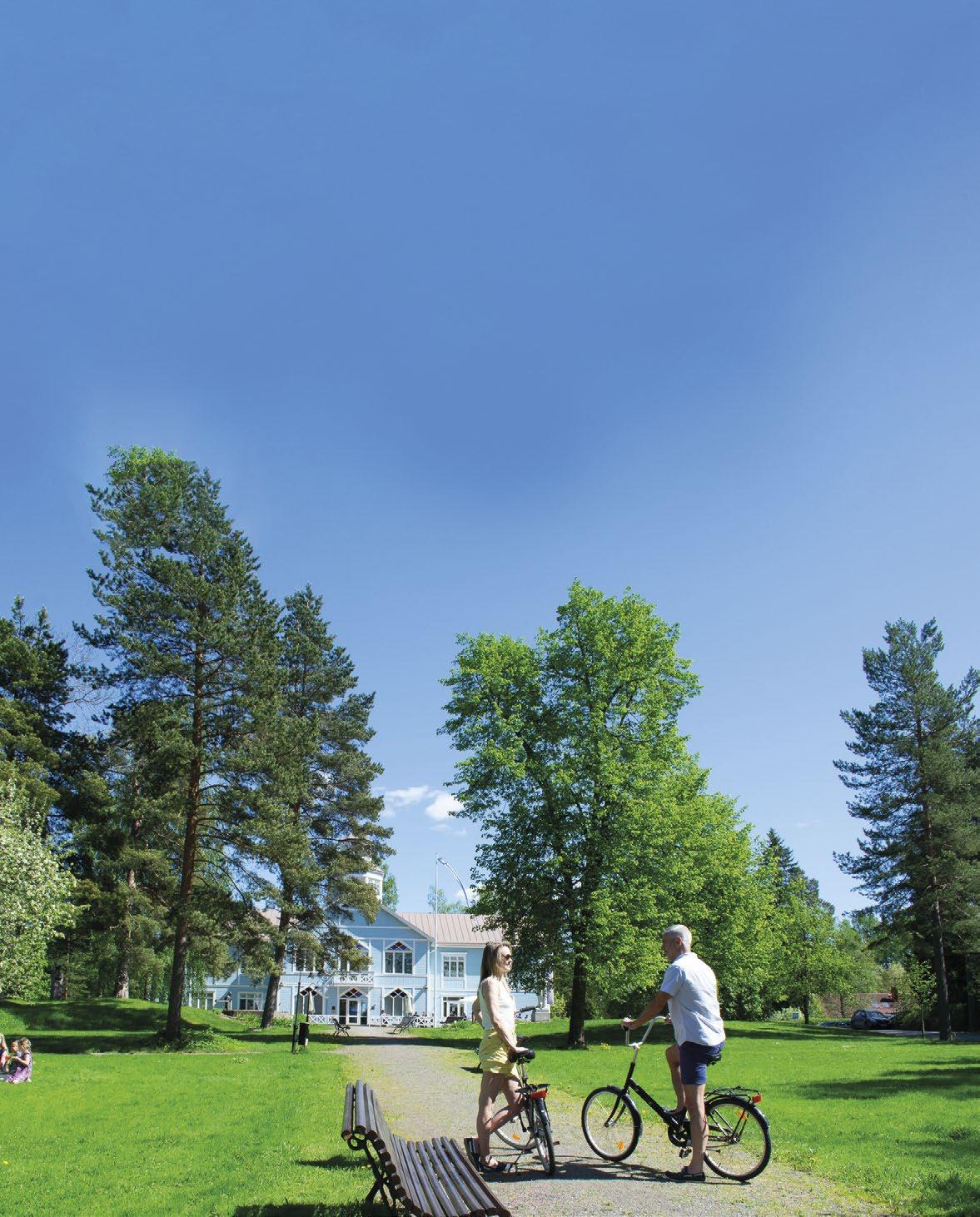
Travel like a local
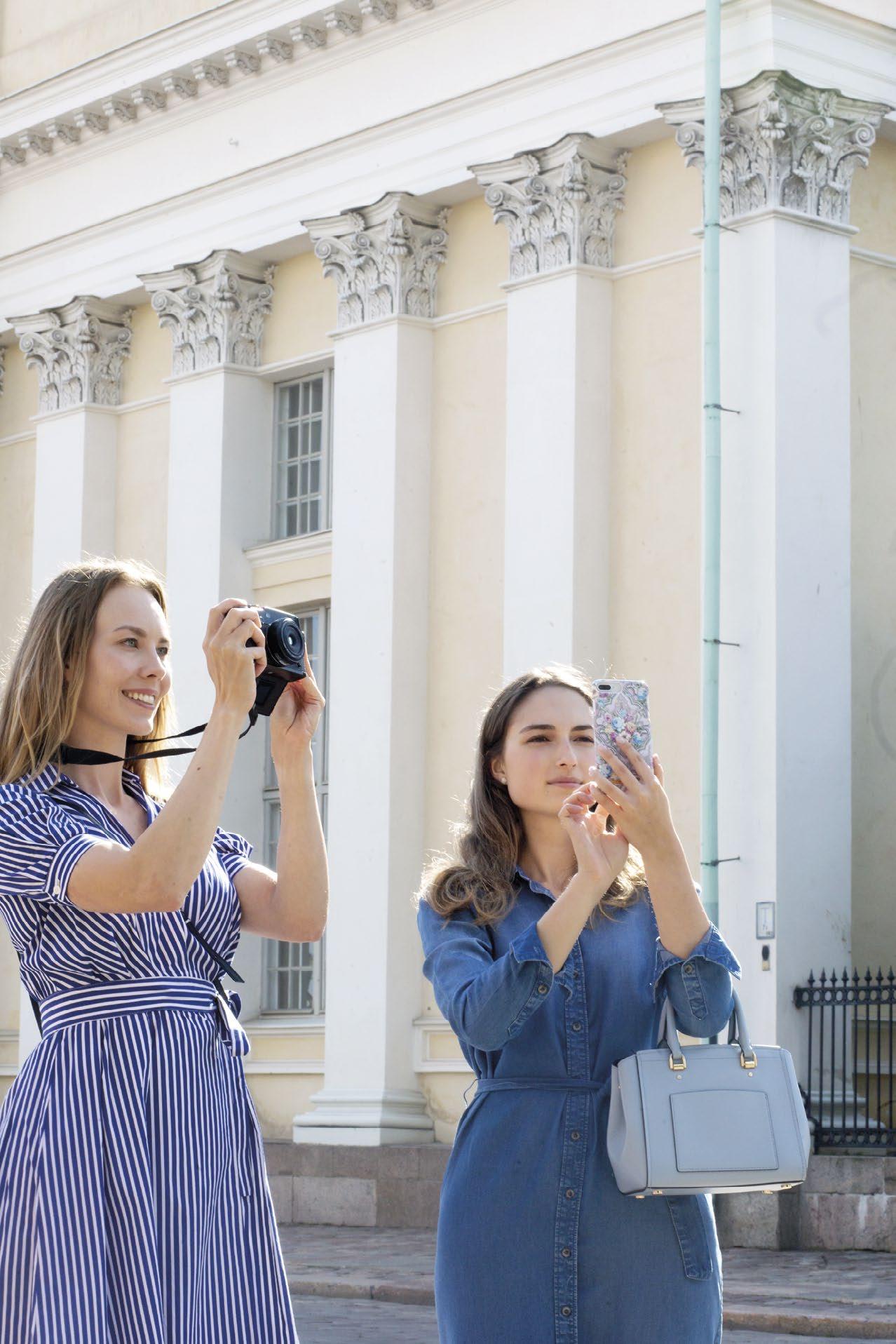
WHY ALWAYS GO UP? WHY ALWAYS GO UP?
An hour bus drive from An hour bus drive from Helsinki Helsinki to Lohja and to Lohja and you will experience the you will experience the underground land of underground land of miners, where darkness miners, where darkness and light combine to and light combine to create experiences create experiences you’ll encounter you’ll encounter nowhere else. nowhere else.
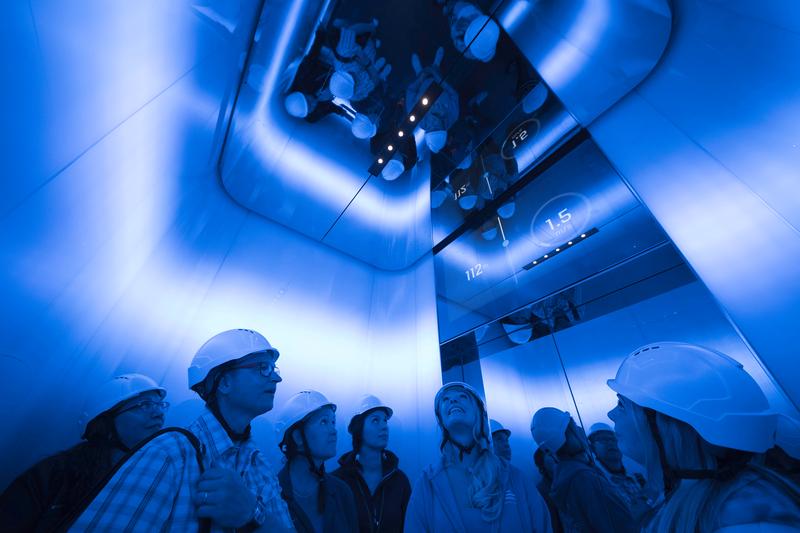
All tickets and destinations via the HSL app. Download the HSL app from your app store and enjoy the sights in the Helsinki metropolitan area.
Transport BEAUTIFUL LAKE SCENERY, RICH CULTURAL HERITAGE – AND SPACE TO BREATHE.
A great DAY TRIP destination: Only 30 minutes from Helsinki main railway station and 15 minutes from the airport! www.visitlaketuusula.fi
Helsinki Region
TYTYRIMINEEXPERIENCE.COM TYTYRIMINEEXPERIENCE.COM
Experience Suomenlinna!
OLD TOYS & FRESH CAKES
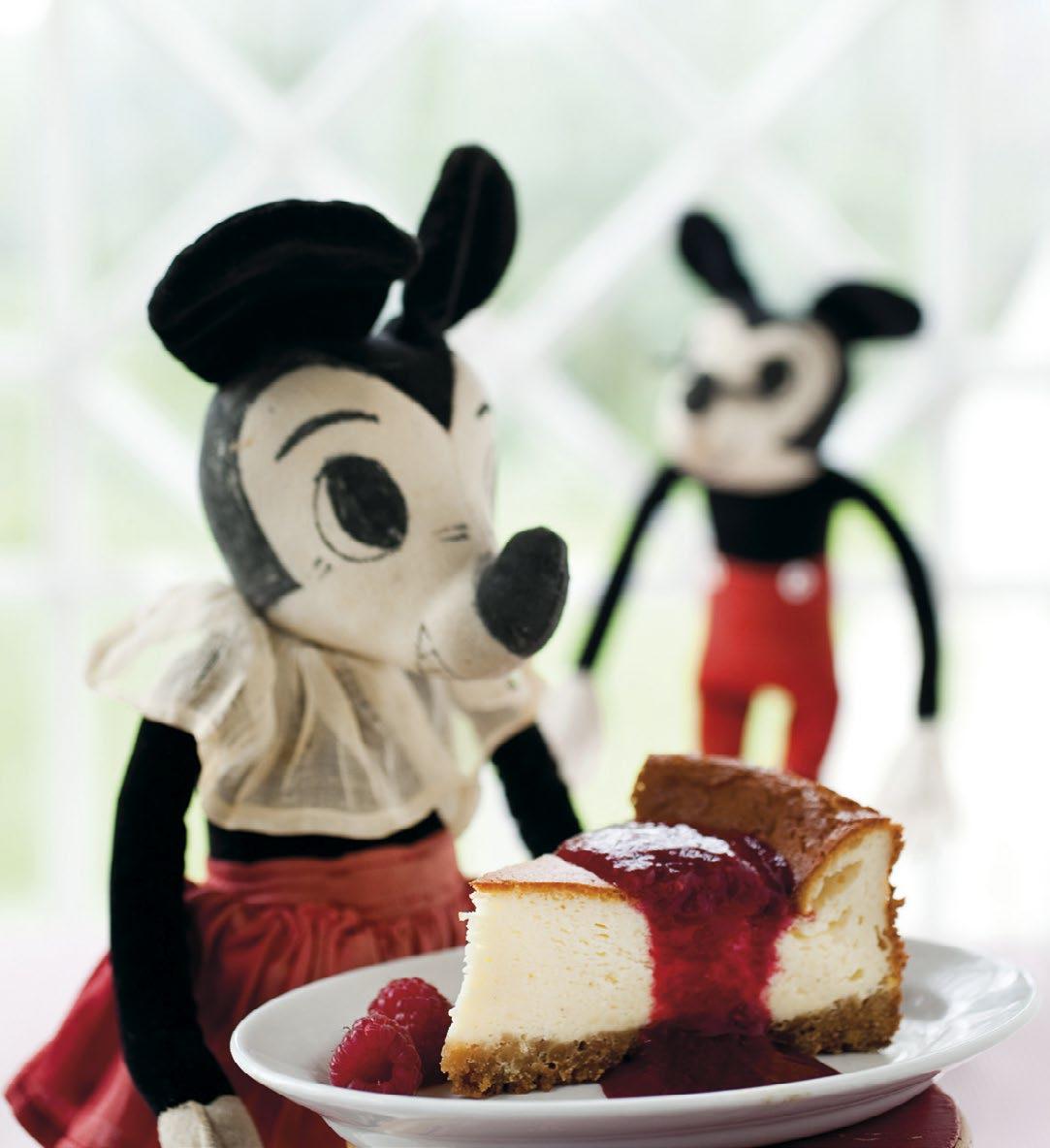
Joining a guided tour is a great way to see the fortress. Guided tours in summer 2022:
In English 1.6-26.6 every day at 13:30 and 27.6-31.8 every day at 10:30 and 13:30
In Swedish 26.6-14.8 everyday at 13:00
In Finnish 4.6-18.6 at 11:30 and 27.6.–14.8 every day at 11:00 and 15:00.
Visit Suomenlinna Museum and Ehrensvärd Museum.
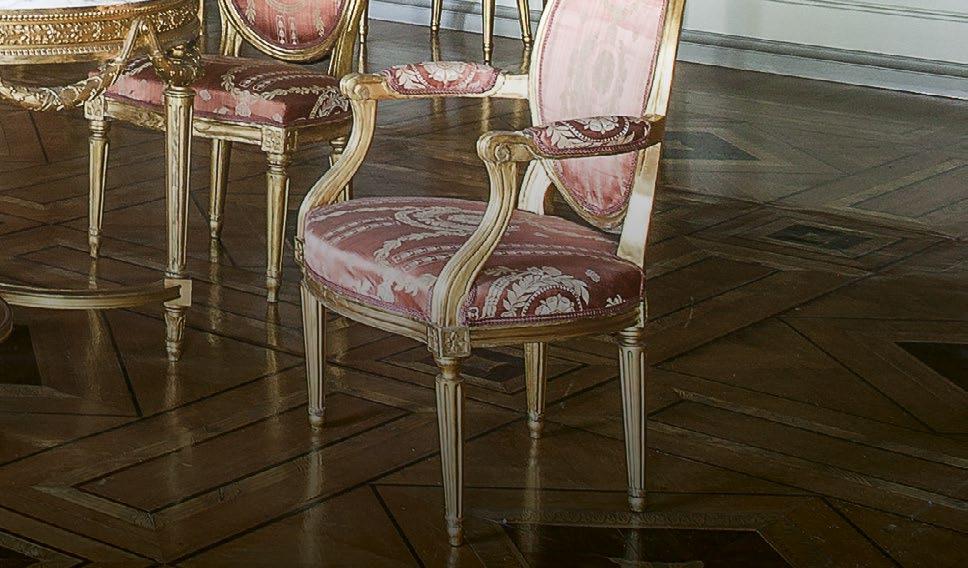

www.suomenlinnatours.com
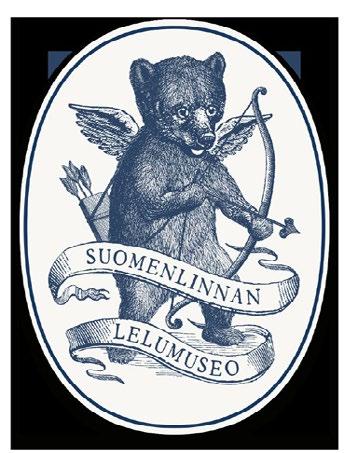
Welcome to the private Toy Museum and Tea Room Café Samovarbar in the sea fortress Suomenlinna, Helsinki! www.lelumuseo.fi
#toymuseumhelsinki #cafesamovarbar
Free admission to the Sinebrychoffs’ Home Museum!
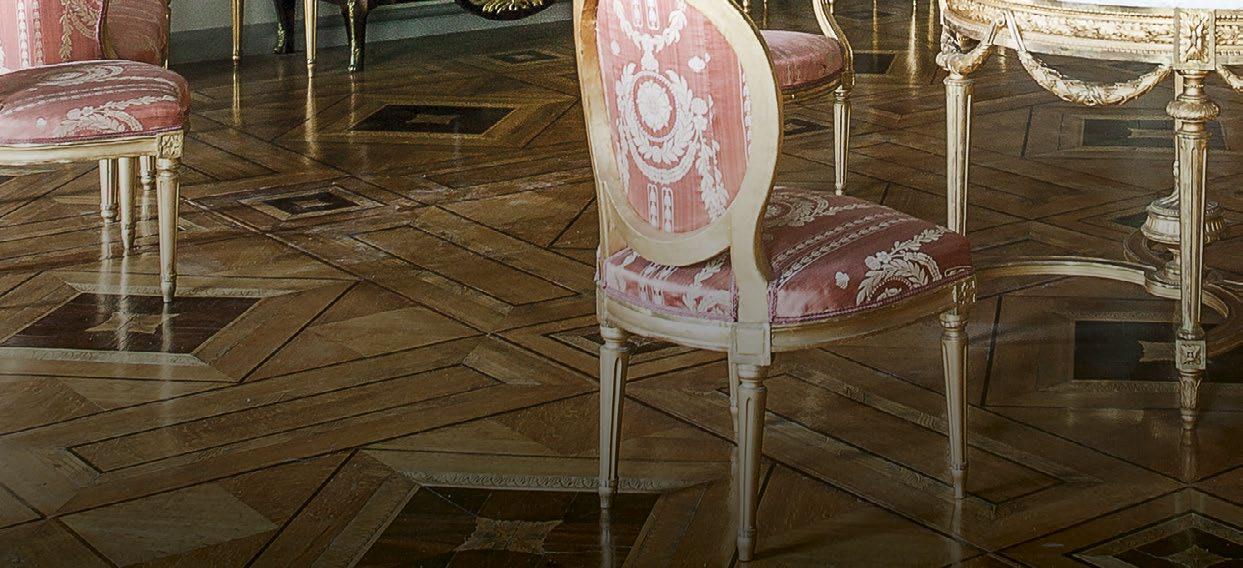
Bulevardi 40, Helsinki www.siff.fi

5/2/2022 10:25:29 AM
Exhibitions: 17.2. - 28.8.2022 Linnaeus and Glimpses of Paradise 6.10.2022 - 8.1.2023 Under
the Cherry Blossom - Japanese Woodblock Prints
ARS22 at Kiasma celebrates living encounters between art and people
Written by reetta HaarajOki
An installation that comes to life, a dive into the warmth of a womb, a ride in a tourist busthese and more than 50 other works of art are on display at the ARS22 exhibition at Kiasma.
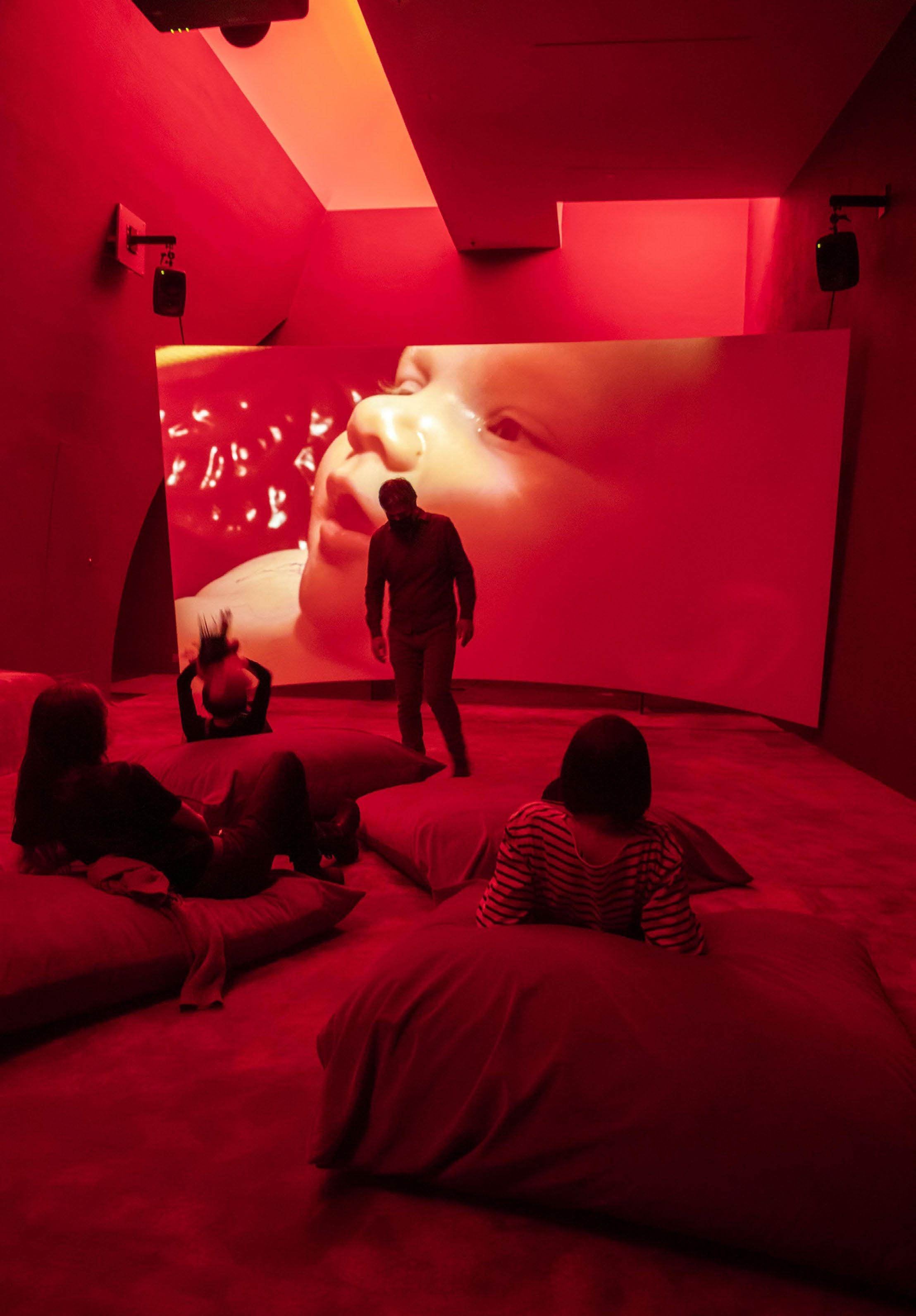
Filling the entire museum, the show features works of topical contemporary art, from paintings to installations, from performances to contemporary dance.
First presented in 1961, the ARS exhibition series is a powerhouse institution in the field of contemporary art. Each show in the series has been a reflection of its time, and so it is with the 2022 exhibition as well: a look at the world we live in and the stories told about it. The exhibition creates a polyphonic space for imagining alternative futures together.
Encounter and experience are the core concepts of ARS22. The show gives us tools to better understand other people and species. This is exemplified by the lessons in empathy found in the work by Eva Koťátková (b. 1982, Czechoslovakia), which invites visitors to consider the world from the perspective of non-human species, by putting themselves in the position of the other.
photo: f inni S h nA tion A l gA llery / p etri v irt A nen Laure Prouvost: From the Depth of Our Heart To the Depth of The See, 2022
21
Inspired by sauna and Sibelius
The show includes 15 new works of art created specifically for ARS22. Working in Hanasaari, Espoo, just outside Helsinki, French artist Laure Prouvost (b. 1978) has created a piece that explores womanhood, motherhood and sauna culture all at the same time. Entering the exhibition space from behind thick curtains is like diving into the safe and protective warmth of the womb – the room is even heated to match the temperature of the human body.
Samson Kambalu (b. 1975, Malawi) created his performance video Hiltunen Republic on walks he took in Helsinki. He was especially inspired by sculptor Eila Hiltunen’s (1922, Sortavala–2003, Helsinki) acid-proof steel monument to composer Jean Sibelius in Töölö. Kambalu’s work is accompanied by an early mock-up of the monument. Kambalu found similarities between Hiltunen’s welded sculpture and his own artistic thinking. Incidentally, Hiltunen was one of the artists who featured in the very first ARS exhibition in 1961.

One of the show’s prominent themes is the climate crisis. Atlantis by Luís Lázaro Matos (b. 1987, Portugal) is set in a future world where animals that have survived the climate disaster are having a celebration. In the gallery, the visitor encounters the staring eyes of underwater creatures painted on plexiglass sheets. The figures reference the light sleep of aquatic creatures but also contemporary culture, in which we are under constant surveillance by all kinds of devices.
Artistic explorations of culture
Artists from various parts of the world bring to ARS22 interpretations of their own cultures. D Harding (b. 1982, Australia) painted his work with ochre directly on the walls of Kiasma. Harding is an indigenous Australian, for whom the act of bringing pigment from his homeland wrapped in a wool blanket is an integral part of his practice. Aboriginal peoples have been using ochre for thousands of years and have transported it along trade routes across the vast continent.
El Autobús is an installation referencing travel in Latin American countries. For ARS22, Sol Calero (b. 1982, Venezuela) created a version of his piece by using seats familiar to many Finns from a local bus company. Calero’s work is a reminder of the unequal opportunities for travel and leisure among the world’s peoples.
Pia Camil (1980, Mexico) invites visitors to participate in a game of barter using objects and their stories as currency. Camil is fascinated by the concept of the gift, the exchange of gifts and also by trading without money. The installation is designed to resemble vendor stalls in the streets and markets of Mexico City.
New contemporary art from Finland
The exhibition includes many new pieces of contemporary art by Finnish practitioners. The 2021 Young Artist of the Year, Joel Slotte (b. 1987, Finland) blends reality and fantasy in his art. The plants, insects, tattoos and metal band logos in his pictures are carefully chosen symbols that invoke cultures from different eras. Many of the plants in the paintings are traditional folk remedies: mandrake has been used both as a love potion and a cure for insomnia, while the poisonous henbane, or stinking nightshade, is a psychoactive drug.
photo: f inni S h nA tion A l gA llery / p etri v irt A nen
2022 22
D
Harding: International Rock Art Red, drawn
from felt blankets,
Oestrus by Anni Puolakka (b. 1983, Finland) is an exploration of the love of horses. Speaking to the camera, the artist recalls her experiences with horses. Might a horse girl eventually transform into a centaur, a hybrid between human and horse?
Highlights from the past ARS exhibitions
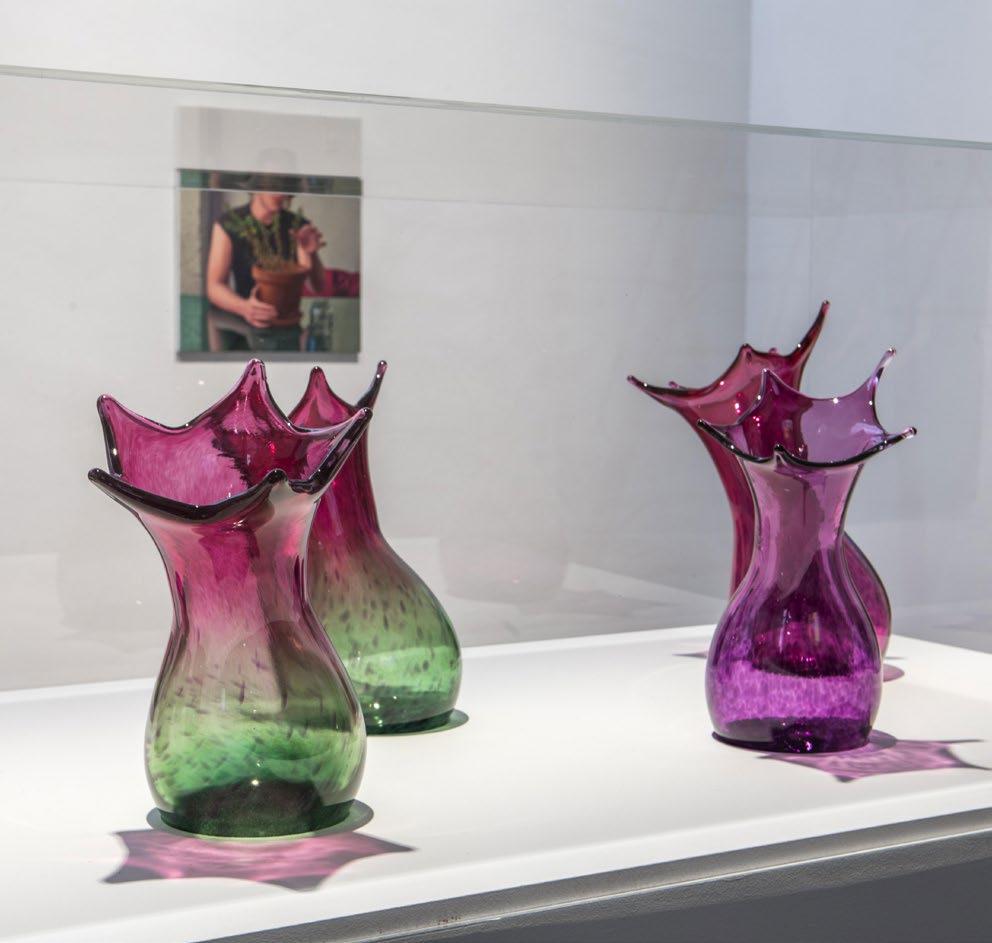
Living Encounters is the first show in the series that, alongside new work, features selected works from past ARS exhibitions. These include the documentation of a performance by artist couple Marina Abramović (b. 1946, Yugoslavia) and Ulay (1943, Germany – 2020, Slovenia), which was presented at ARS83, held at the Ateneum Art Museum. In the performance, the artists sat in place for hours without speaking, eating or drinking.
Presented originally at ARS74, When the Sea Dies (1970) by Kimmo Kaivanto (1932–2021, Finland) is a comment on the state of the world. Well ahead of its time, the work remains topical to this day. Back in the 1970s, the work spread around the world on UNICEF postcards.
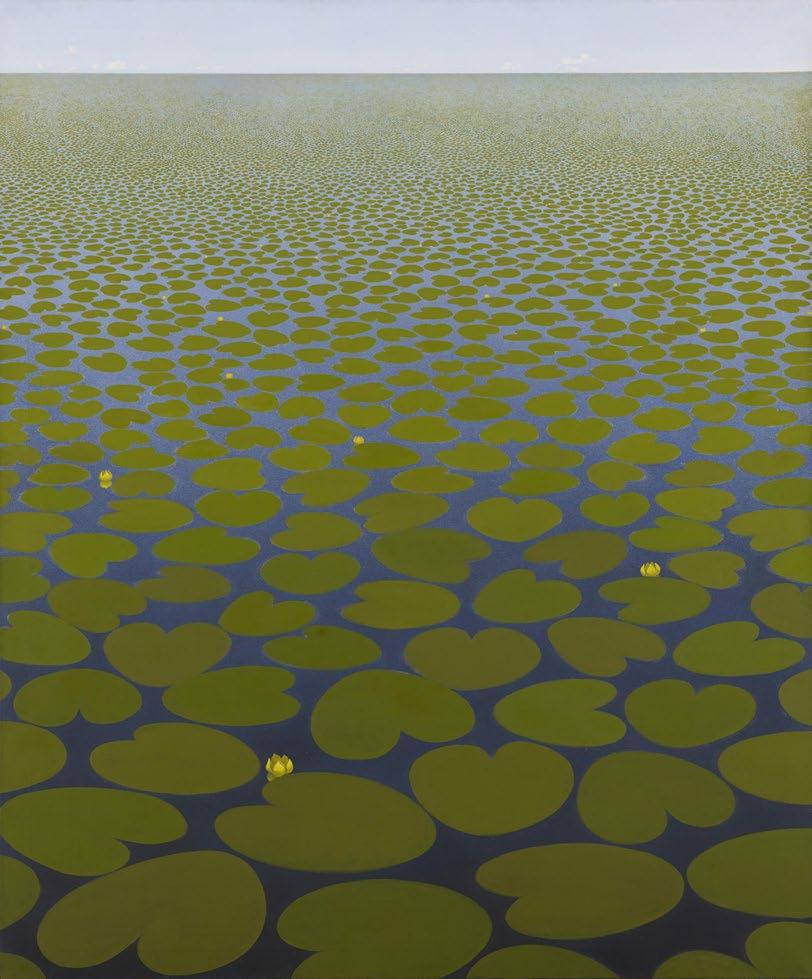
All ARS exhibitions have left their visitors with impressions that have lasted for decades. While the names of individual artists or works may be lost to time, the experiences remain unforgettable. s
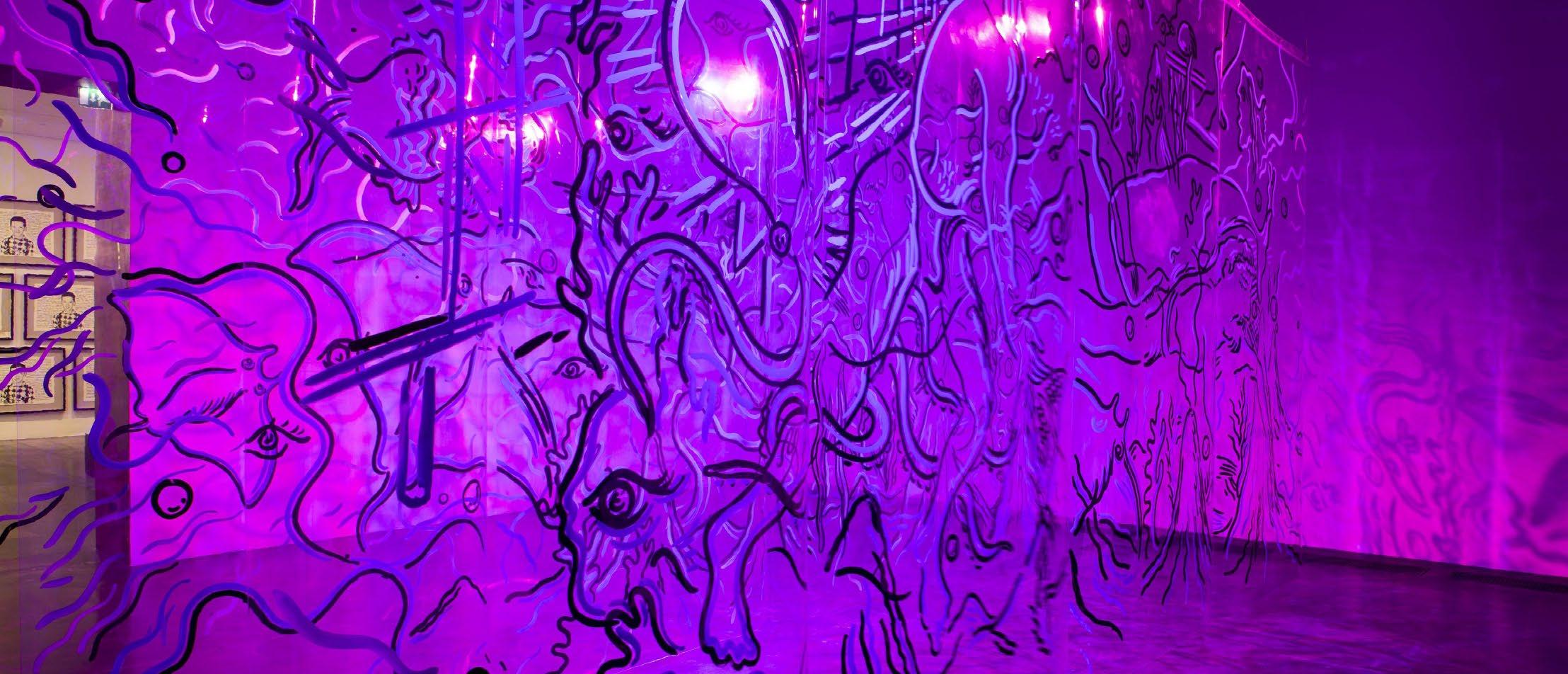
Museum of Contemporary Art Kiasma is part of Finnish National Gallery together with Ateneum Art Museum and Sinebrychoff Art Museum. It was re-opened in April 2022 after renovation.
MUSEUM OF CONTEMPORARY ART KIASMA
Mannerheiminaukio 2, 00100 Helsinki www.kiasma.fi
Opening hours
Tue–Fri 10–20:30
Sat 10–18
Sun 10–17
Mon closed
Tickets
Adults €18
Discounted admission €16
Free with Museum Card
Under 18: free entry
In addition to Kiasma Theatre, the extensive performing arts programme of ARS22 spreads to the exhibition galleries and the museum foyer.
The operatic performance Sun & Sea by a Lithuanian group of artists will be presented in August at the Merikaapelihalli venue in the Cable Factory as part of the ARS22 exhibition and the Helsinki Festival programme.
photo: f inni S h nA tion A l gA llery / p etri v irt A nen photo: f inni S h nA tion A l gA llery / p etri v irt A nen photo: S A r A h ildén Art m u S eum / Ju SS i k oivunen
Luis Lázaro Matos: Atlantis, 2022
Kimmo Kaivanto: When the Sea Dies II, 1973. Featured at ARS74 .
23
Joel Slotte: Witch Vertebrae, 2021–2022
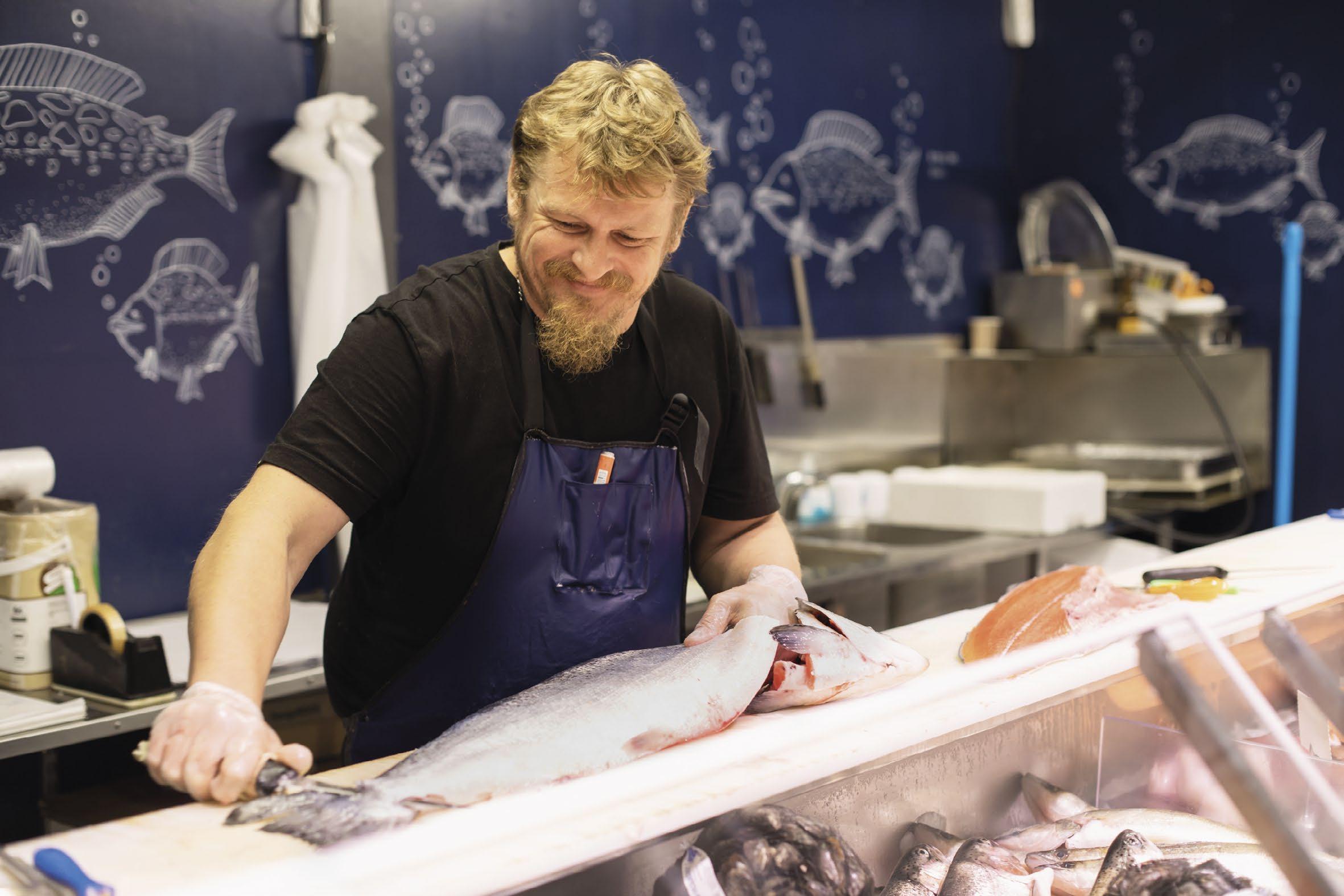


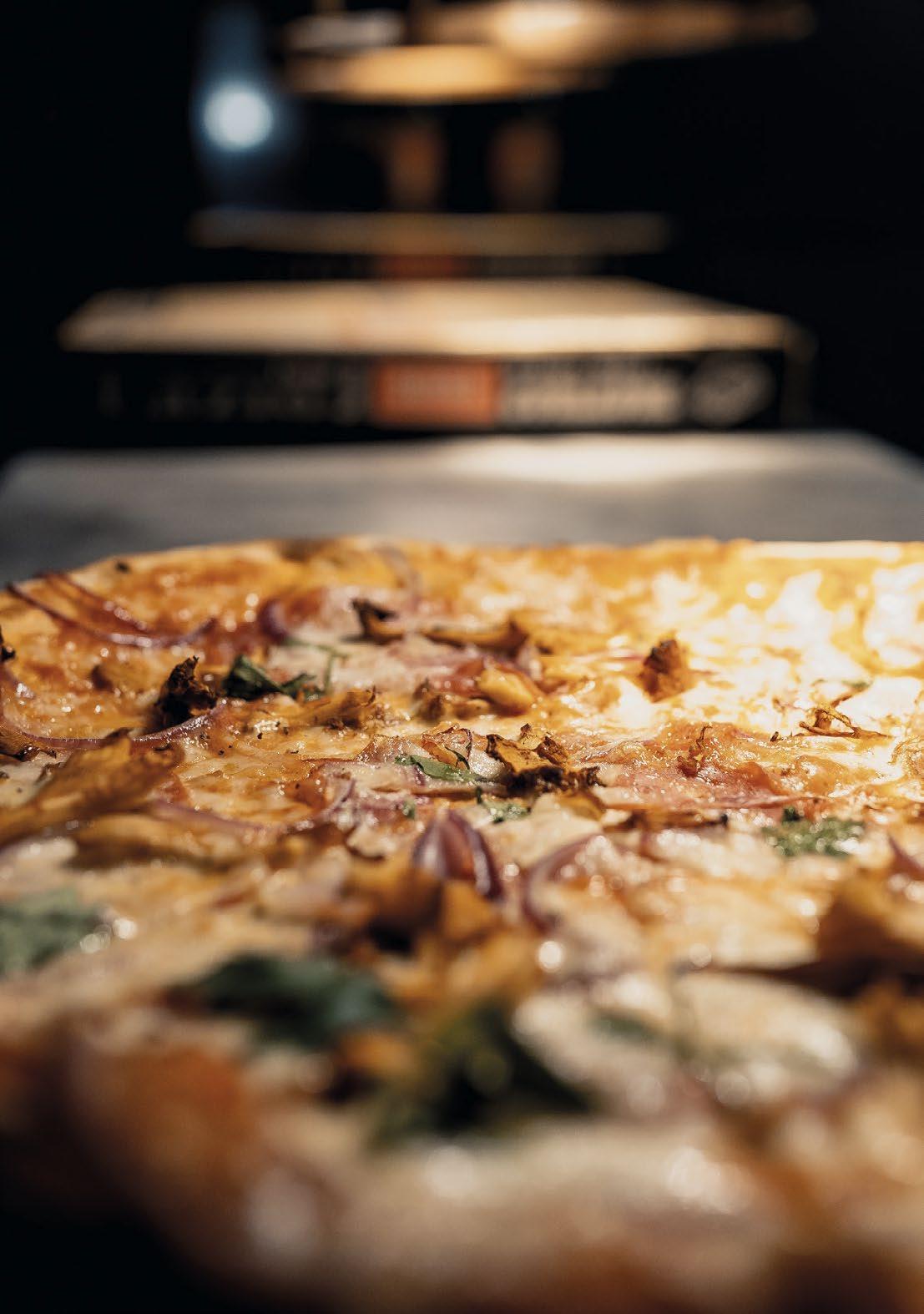
HAKANIEMI MARKETHALL Over 40 specialty stores for gift items, food and restaurants. MON–SAT 8 am – 6 pm WELCOME TO EXPERIENCE UNIQUE SERVICES IN THE MAGNIFICENT MARKET HALL. BULEVARDI 32, 00120 HELSINKI, +358 20 776 8481 WWW.DENNIS.FI Established 1975 TRAD I T I ONAL italian restaurant No reservation needed
BREWERY DISTILLERY BAR
BEERS AND WHISKIES FROM OWN BREWERY AND DISTILLERY • KITCHEN OPEN TILL CLOSING TIME
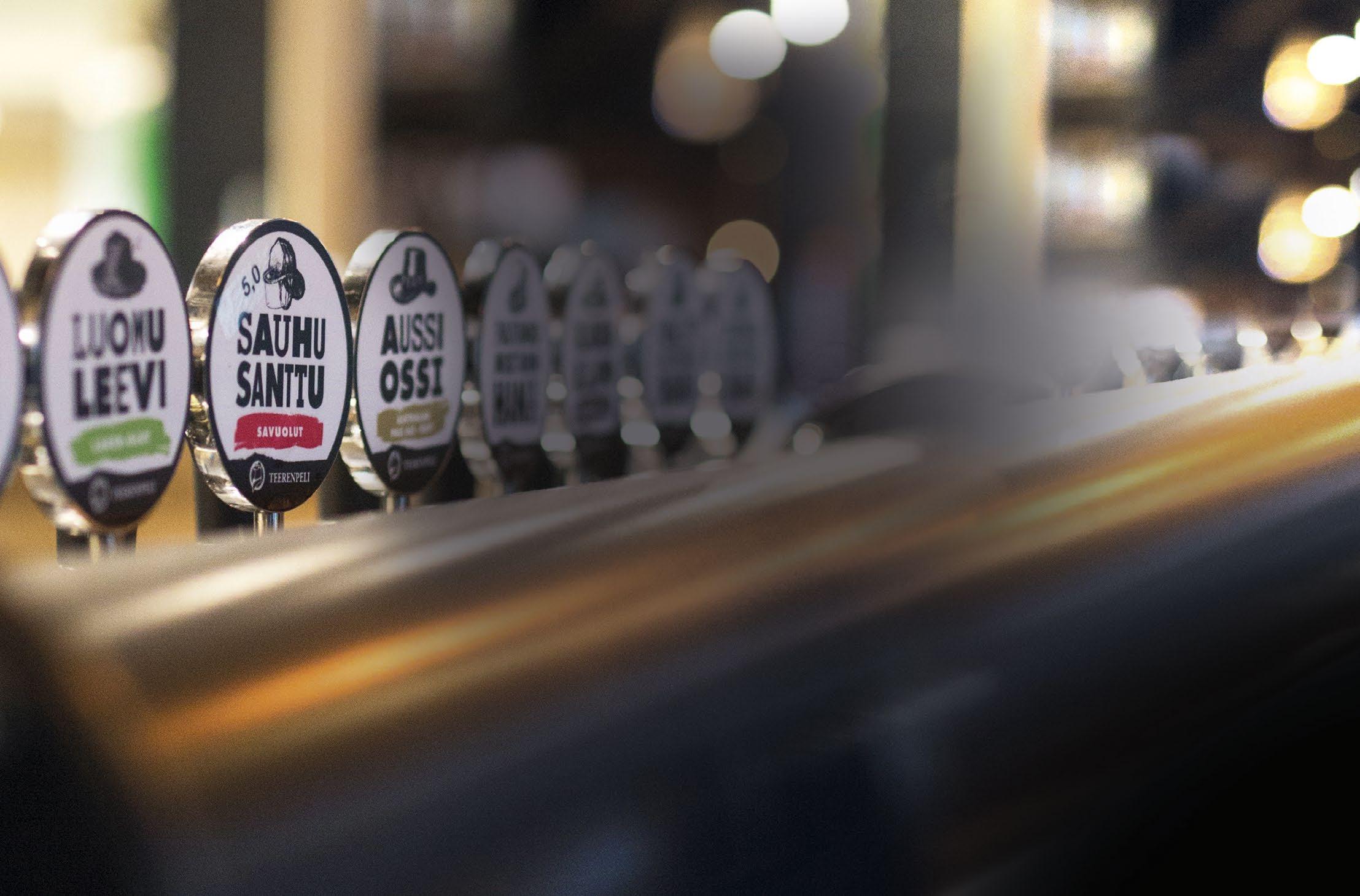
TEERENPELI KAMPPI - OLAVINKATU 2 - WWW.TEERENPELI.COM
HANDICRAFT FROM TÖÖLÖ SINCE 1990
WINE BAR OF THE YEAR 2020

- VIINILEHTI MAGAZINE -
RESTAURANT KUUKUU
Open: mon–sat 12–23, sun 12–22
Museokatu 17, 00100 Helsinki
Reservations: ravintola@kuukuu.fi
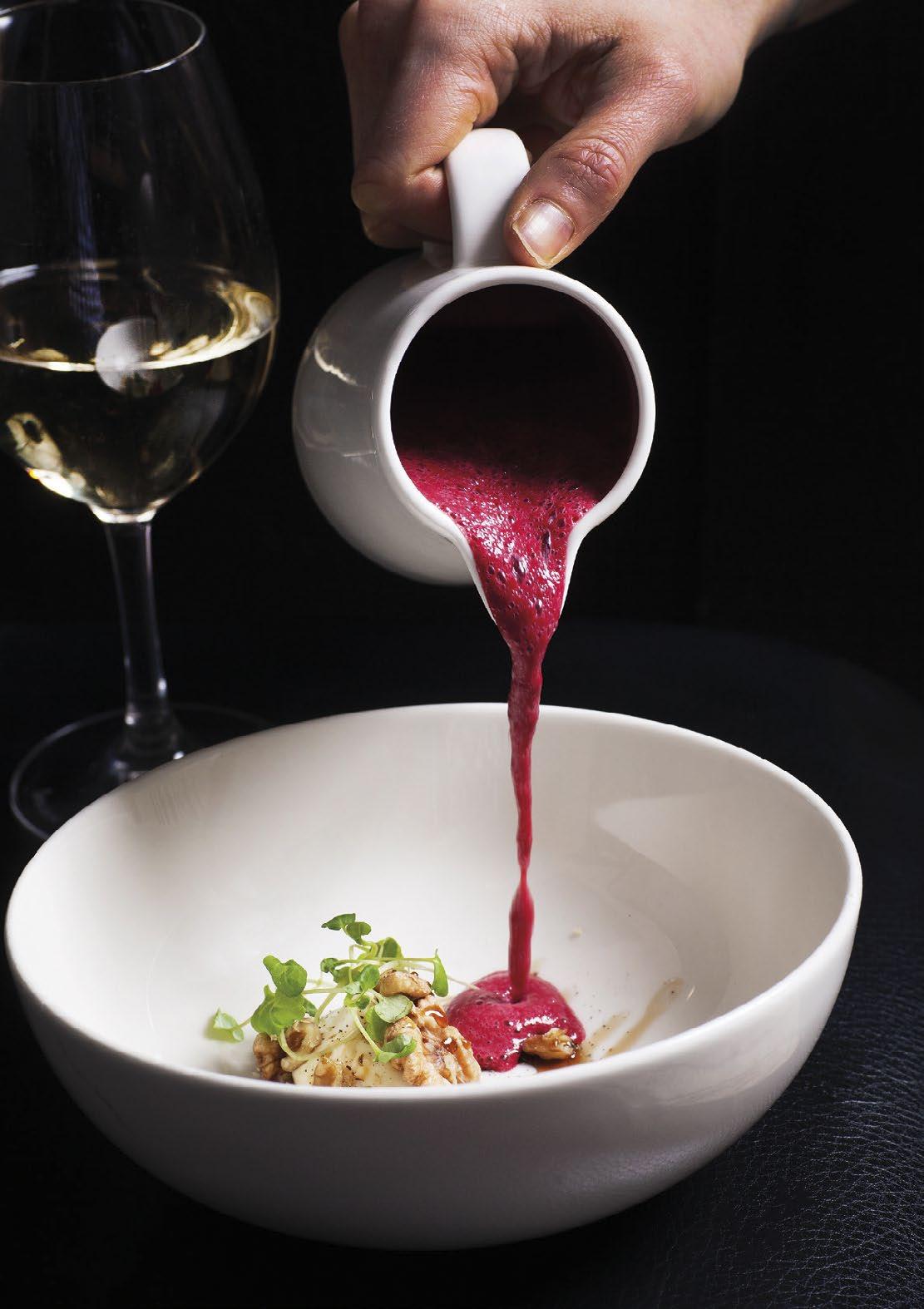
APOTEK WINE BAR
Open: tue-thu 16–23, fri 16-24, sat 15-24
Lapinlahdenkatu 1, 00180 Helsinki
ravintola@viinibaariapotek.fi
Test which museum is right for you
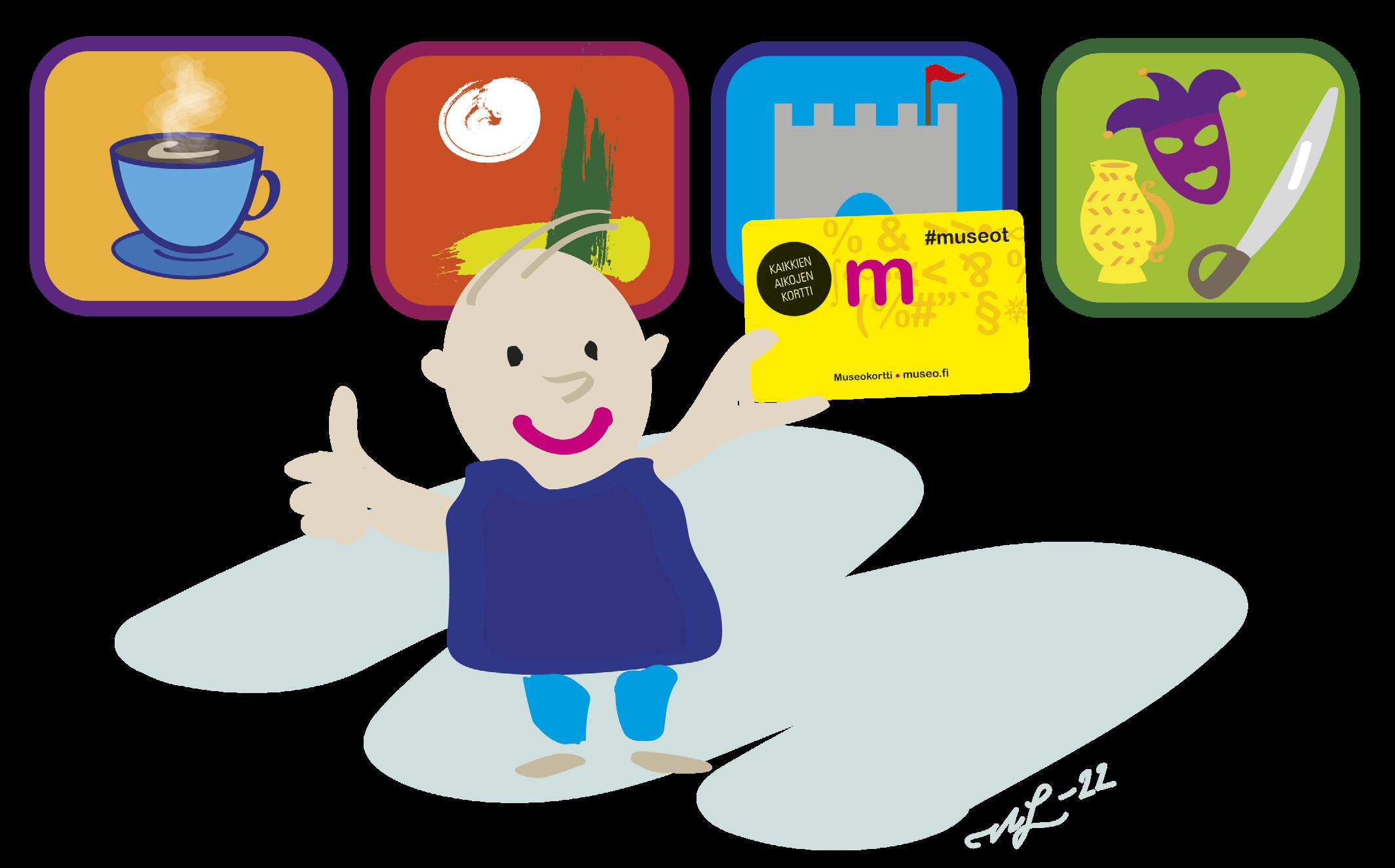
The Metropolitan area is full of interesting museums. But which one or which ones are right for you?
1. The most important thing about a museum for me is…
A) To admire contemporary art and challenge myself.
B) To get to breathe in history.
C) The museum.
D) That the tour be as short as possible.
2. The best thing in a museum is…
A) Having experiences with others.
B) Being completely surprised (in a good way) by an exhibition I didn’t know about or expect anything from.
C) Getting more information about things you already know.
D) The cafe.
Written by rOOpe lipasti
translated by OWen F. WitesMan illustratiOns by ulriikka lipasti
3. I would take a first date…
A) Somewhere we could have an intellectual discussion about the art experience.
B) To a place where we could walk side by side in dim, narrow corridors or romantic courtyards and alleys.
C) Depends on which exhibition he/she hasn’t had time to see yet.
D) Isn’t there a bar out in front of the museum somewhere?
4. Before going to a museum, I carefully read what exhibitions there are.
A) Why not, but it’s just as nice to be surprised.
B) Huh? No way! Museums are about exploring!
C) Of course. That’s the only way to get the most out of your visit.
D) Come on, isn’t it enough that I look at the blasted things?
26
5. Museum Card means...
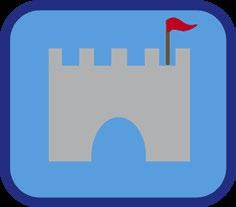

A) An opportunity to have more experiences.
B) An old postcard in the Postcard Museum.
C) Significant savings every year—74 euros for as many museums as you want to see!
D) A driver’s license for a pensioner.
6. If I run into something in a museum that I don’t understand…
A) I don’t.
B) No harm, not everything needs to be understood. I smile and move on to the next thing.
C) I sit down and think of different approaches to understanding the piece.
D) Wait, you mean people understand this stuff sometimes?
7. What is the best museum day?
A) Wednesday. A little shot of art is a perfect break from the week!
B) Friday. It’s nice to wind down for the weekend surrounded by the past!
C) Sunday. What could be more wonderful than spending a day off leisurely enjoying some culture and then discussing what we saw and experienced over coffee?

D) Definitely Monday.
8. Who will I bring to the museum?
A) A friend to contemplate everything I see and experience with.
B) My spouse or children. Adventure is always good to share.
C) My Museum Card.
D) A friend. In difficult situations, peer support always helps.
9. The best museum city in Finland is…
A) Helsinki. There’s something for everyone here!
B) In the center of Helsinki: the amount of interesting museums is overwhelming!
C) Helsinki of course. What a silly question.
D) Don’t they all have museums?
Most A-answers An omnivorous connoisseur

You love art and new experiences. You are fascinated both by classical paintings and modern art. You are interested in reflecting on what you see and analyzing it by yourself or with a friend. All museums are for you, but you’re most likely to head to the Kiasma, HAM – Helsinki Art Museum or to the Amos Rex. But maybe this time you’ll make an exception and go to the Temppeliaukio Church to see its fantastic architecture.
Most B-answers History adventurer
You are fascinated by centuries past, historical people and their daily lives. An old sword or a child’s toy, a shoe from hundreds of years ago, or a drinking glass are things that bring history to life for you. National Museum of Finland, Suomenlinna Museum (with its several museums), Tytyri Mine Experience (Lohja) or The Sports Museum of Finland are your choices.
Most C-answers Cultural heavy user
You probably already know Helsinki’s museums like the back of your hand. Fortunately, there are so many of them that you can always find something new. Or maybe you might tour them in a new way, perhaps in alphabetical order! The Design Museum, Didrichsen Art Museum, EMMA – Espoo Museum of Modern Art, The Finnish Museum of Photography, Helsinki City Museum, Sinebrychoff Art Museum…
Most D-answers Antimuseophile
Museums aren’t at the top of everyone’s list, and that’s fine. However, if you head out on the down-low, you might get interested and hang around for a closer look. For example, a coffee in the historical milieu of Seurasaari Open-Air Museum is pretty great, and after having lunch at Finnish Museum of Natural History, you could afterwards take a nice walk in Kaisaniemi botanic garden in the middle of the city.
27
TIMES COLUMN
The most important hotel employee
in hotel rooms.
In A good hotel, a room attendant is always on site. You can identify them by their enormous carts full not only of a wide variety of cleaning supplies but also fresh towels, fresh sheets and endless small sundries to meet various guest needs: hygiene products, combs, sewing kits, shoe polish, pens, paper, irons, laundry bags, maybe even a Bible and birth control if someone happens to ask. You can get a warm blanket or a soft pillow. If they don’t have what a visitor needs, they get it.
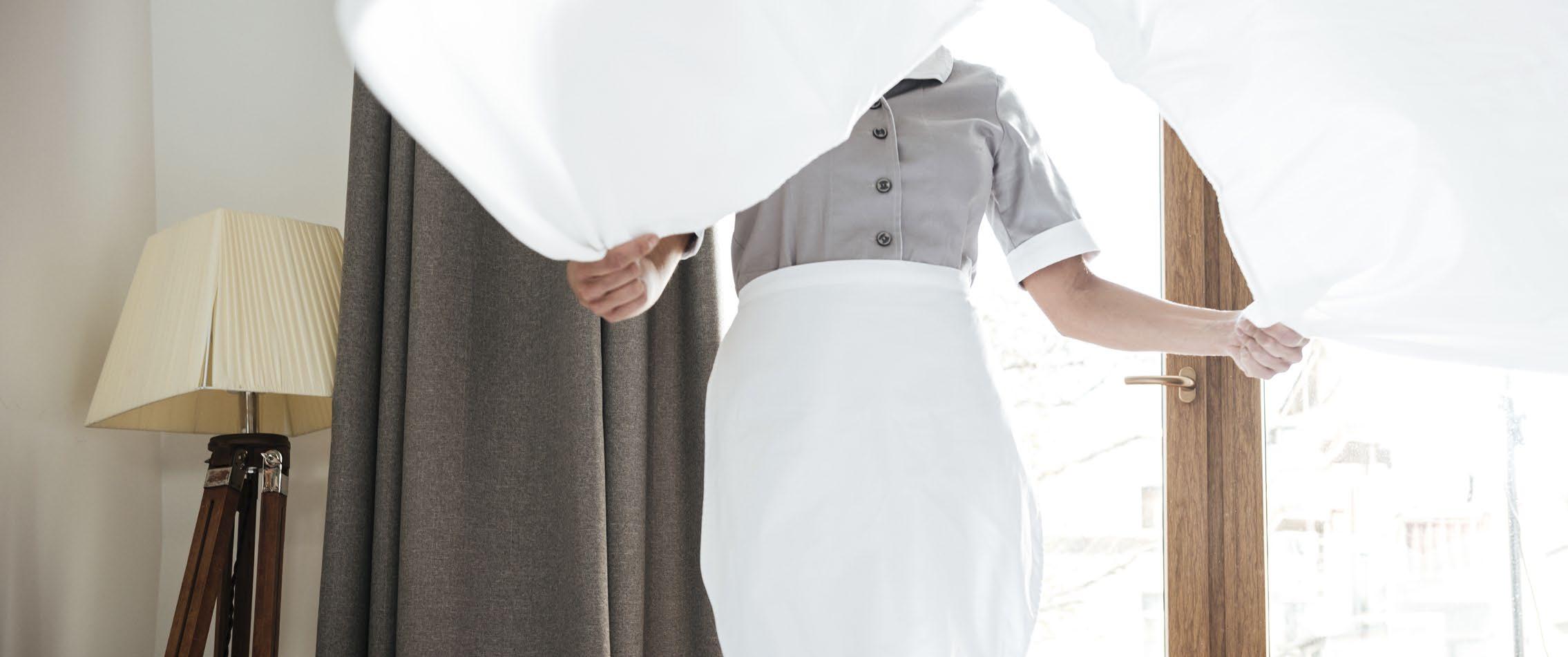
Most hotel guests don’t greet room attendants. Maybe they don’t notice the person standing next to the big cart. Or they think they might not share a common language, which saves the paying customer the hassle of a universal smile and wave. It could also be that the guest really is as busy as they’re trying to look—or they’re ashamed of the mess they’ve left behind. Because really, how many times have you exited a hotel room in a terrible rush, leaving behind the aftermath of a boisterous night for someone else to clean up?
But the room attendant sees all. They go in every room after the guests leave. The most skilled professionals will also know when that moment is right. They won’t knock on the door when we’re still doing our morning routine or resting and can tell from how we’re walking and dressed whether we’re popping down for a quick breakfast or leaving on longer business.
Written by Minna lindgren translated by OWen F. WitesMan

While we’re taking the sights, sitting in meetings, or doing other business, an attendant is inspecting our rooms. They see all the dirty clothes left on the floor—yes, including the underwear—, notice the empty wine bottles and count the dirty glasses, see the leftover food and stains on the towels, remove the hair and Band-Aids from the bathroom floor drain, glance at what we’re reading, and look at what kind of clothes we packed. They clean everything, set the clothes in a pile, make the bed, fold our nightshirts on the pillow, and arrange our random stuff on the desk at right angles – as if trying to teach us how a clean home should look. And what a pleasure it is to return to such a room!
Because I’ve worked as a cleaner, too, I never leave my room messy when I go. I clean the toilet and even fold my nightgown, despite which the pro still smooths any wrinkles I might leave. And because I clean after myself before leaving, it’s easy for me to give the room attendant a cheerful greeting. Maybe also because I consider them to be one of the most important people when it comes to my own comfort. After all, they are also the guard who ensures that no one else slips into my room. s
I love hotel room attendants. They are reliable, unobtrusive and irreplaceable. We can replace doctors, lawyers and hotel receptionists with artificial intelligence but not the person who cleans up the clutter that vacationers or business travelers leave
p hoto: J A rkko m ikkonen photo: e nv A to
Minna Lindgren is an internationally recognized author. In addition to book tours, she spends nights in hotels while presenting operas to people across Europe.
28
METROPOLITAN
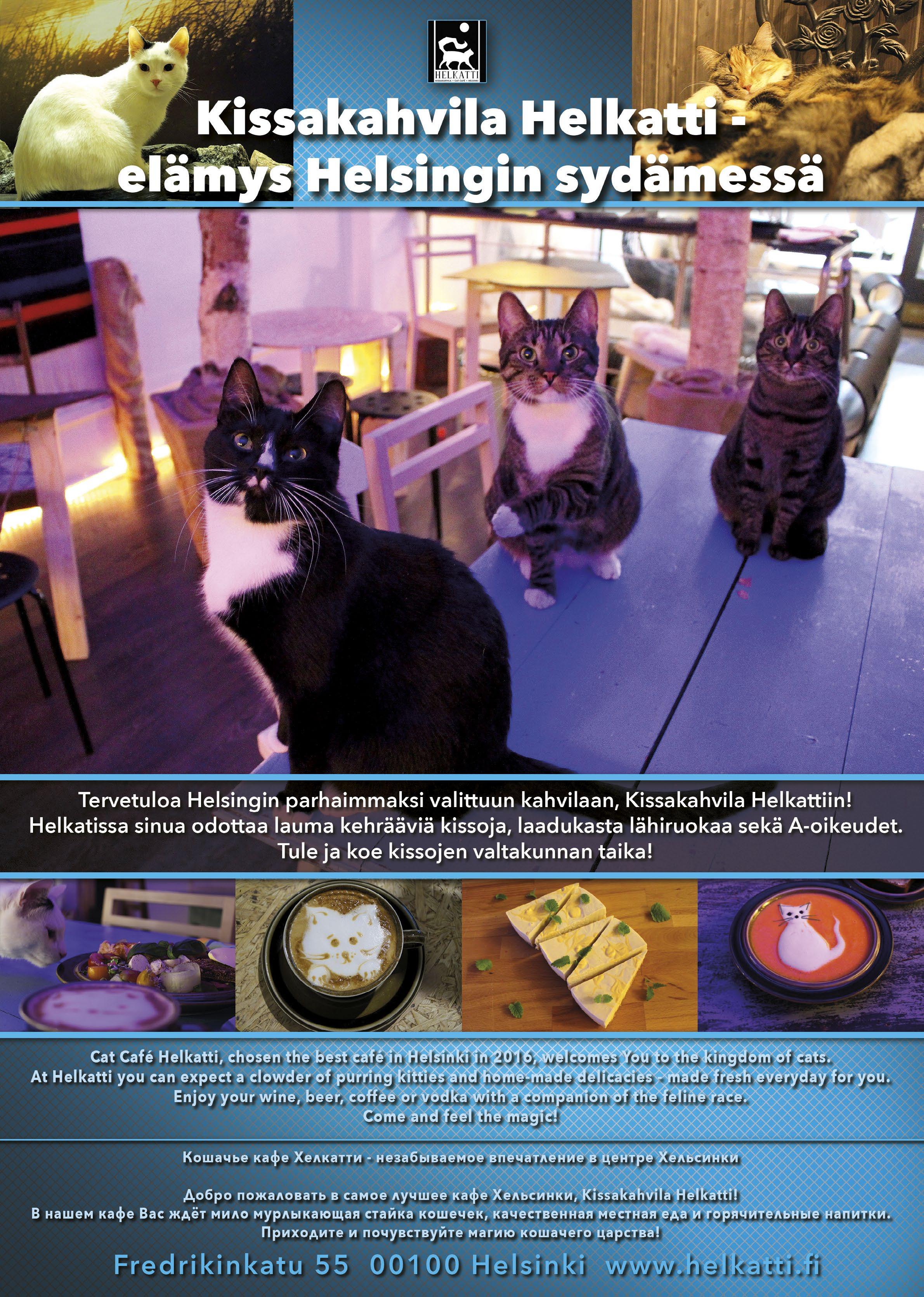

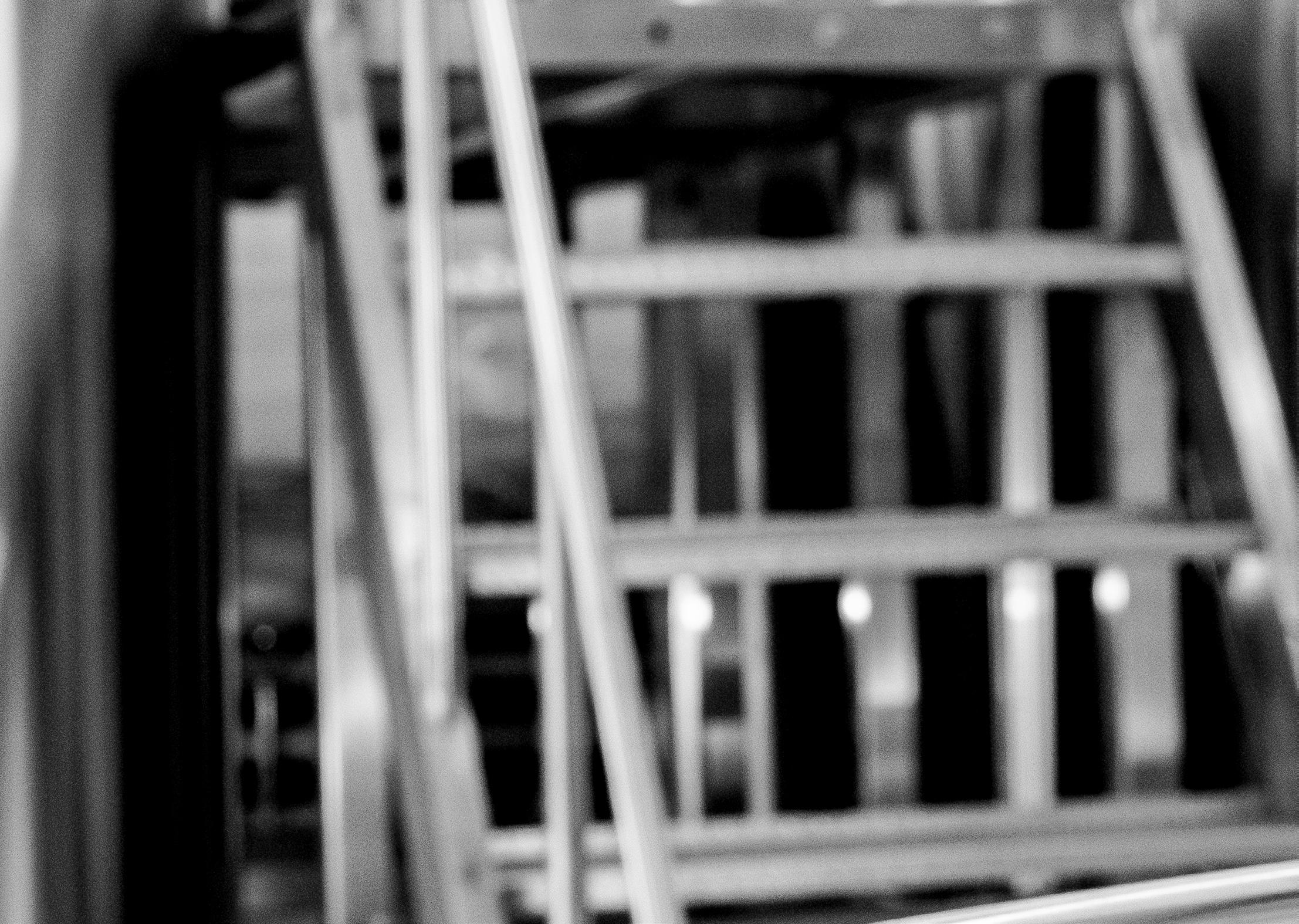

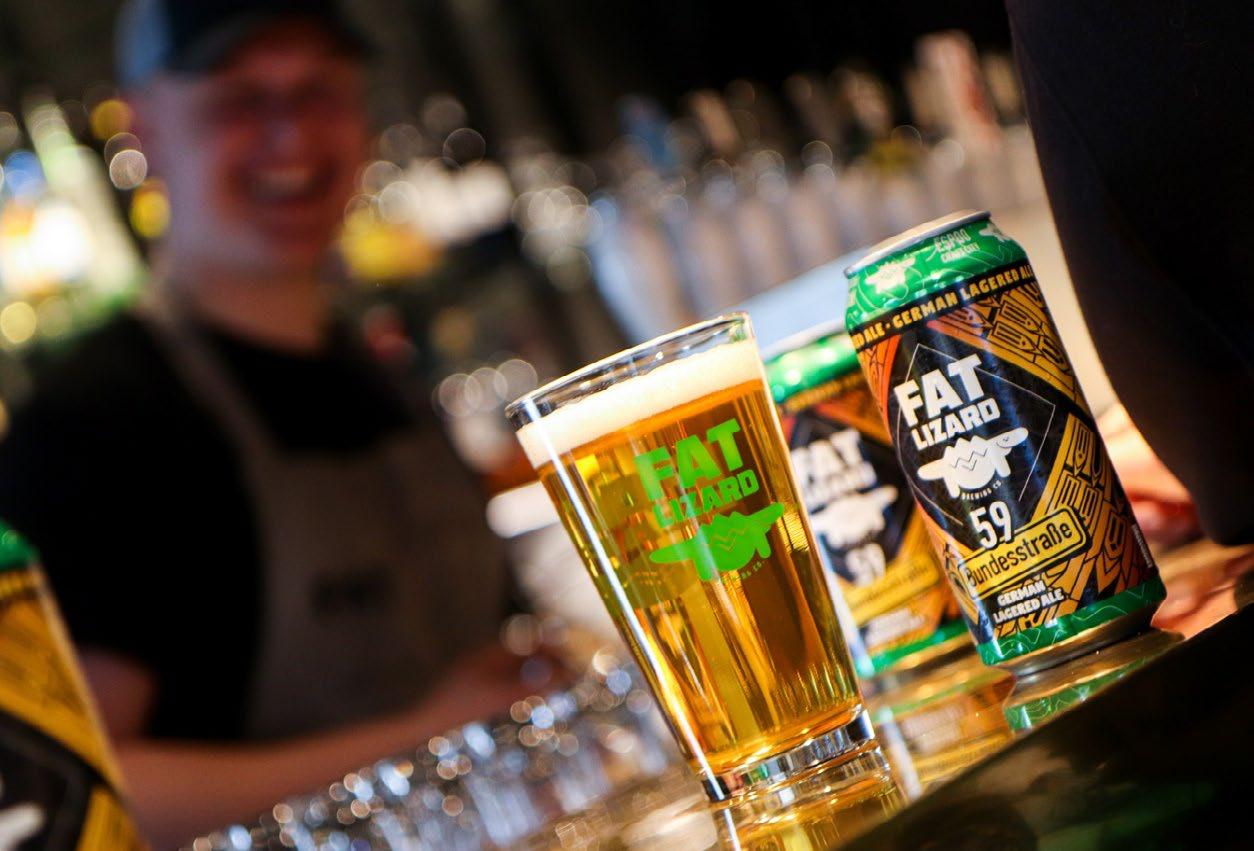
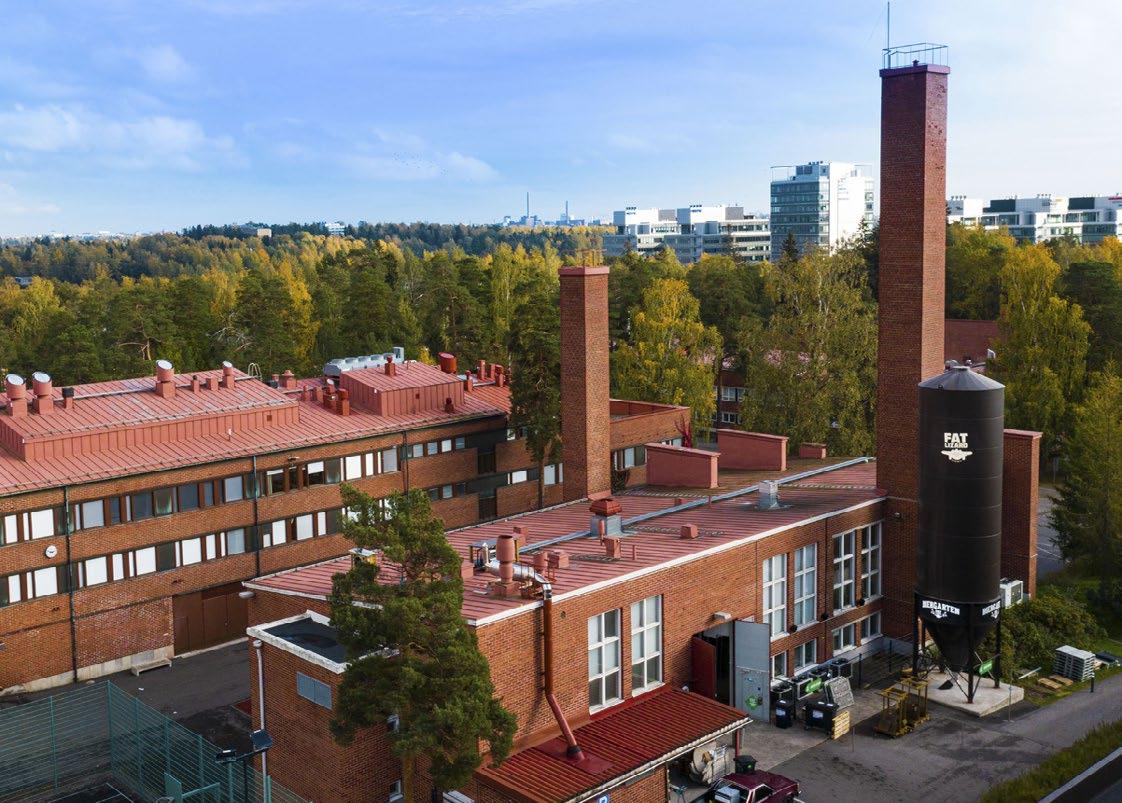
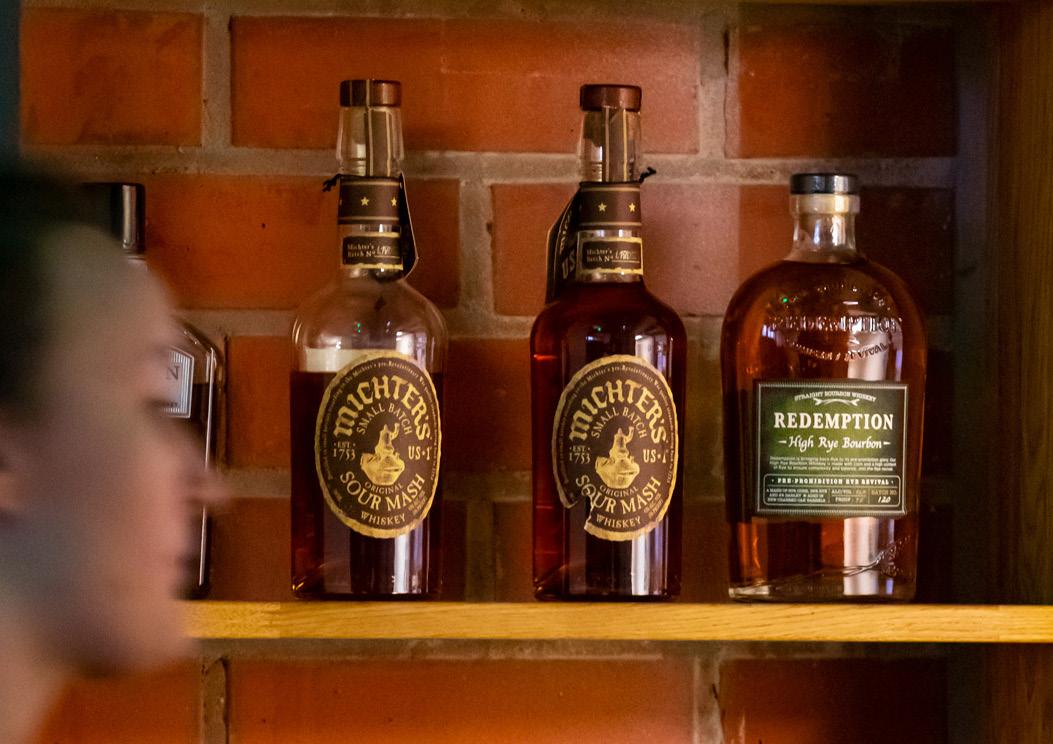
I arrived at Helsinki and I I arrived at Helsinki I arrived at Helsinki and I am hungry. am hungry. am hungry.
Have you heard of Momotoko, the Have you of Momotoko, Have you heard of Momotoko, the Japanese Ramen restaurant? Japanese Ramen restaurant? Japanese restaurant?

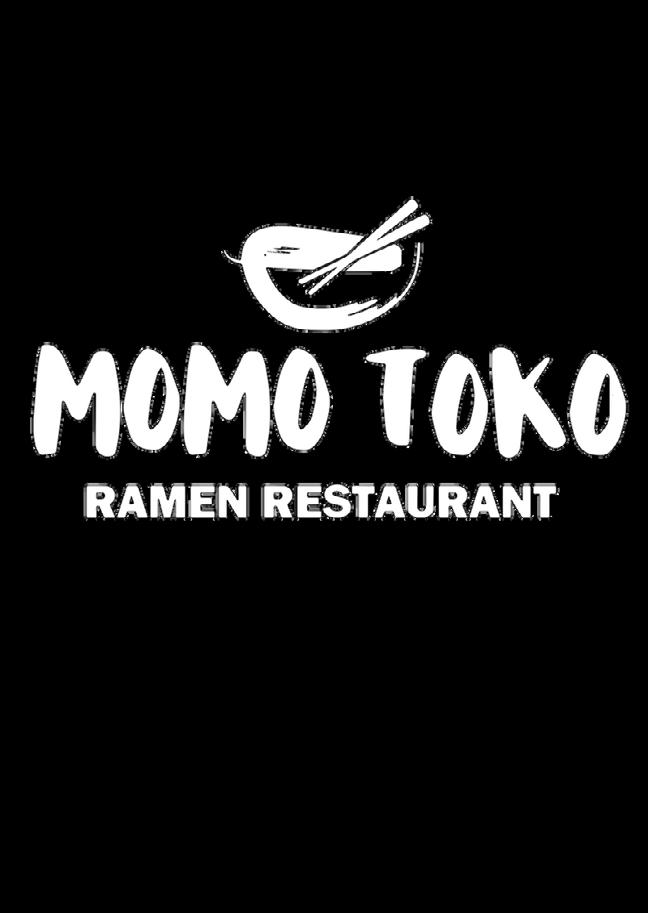

Go check it out if you are in for some check it out if you for some Go it if you are in for seriously good food. good seriously good food.

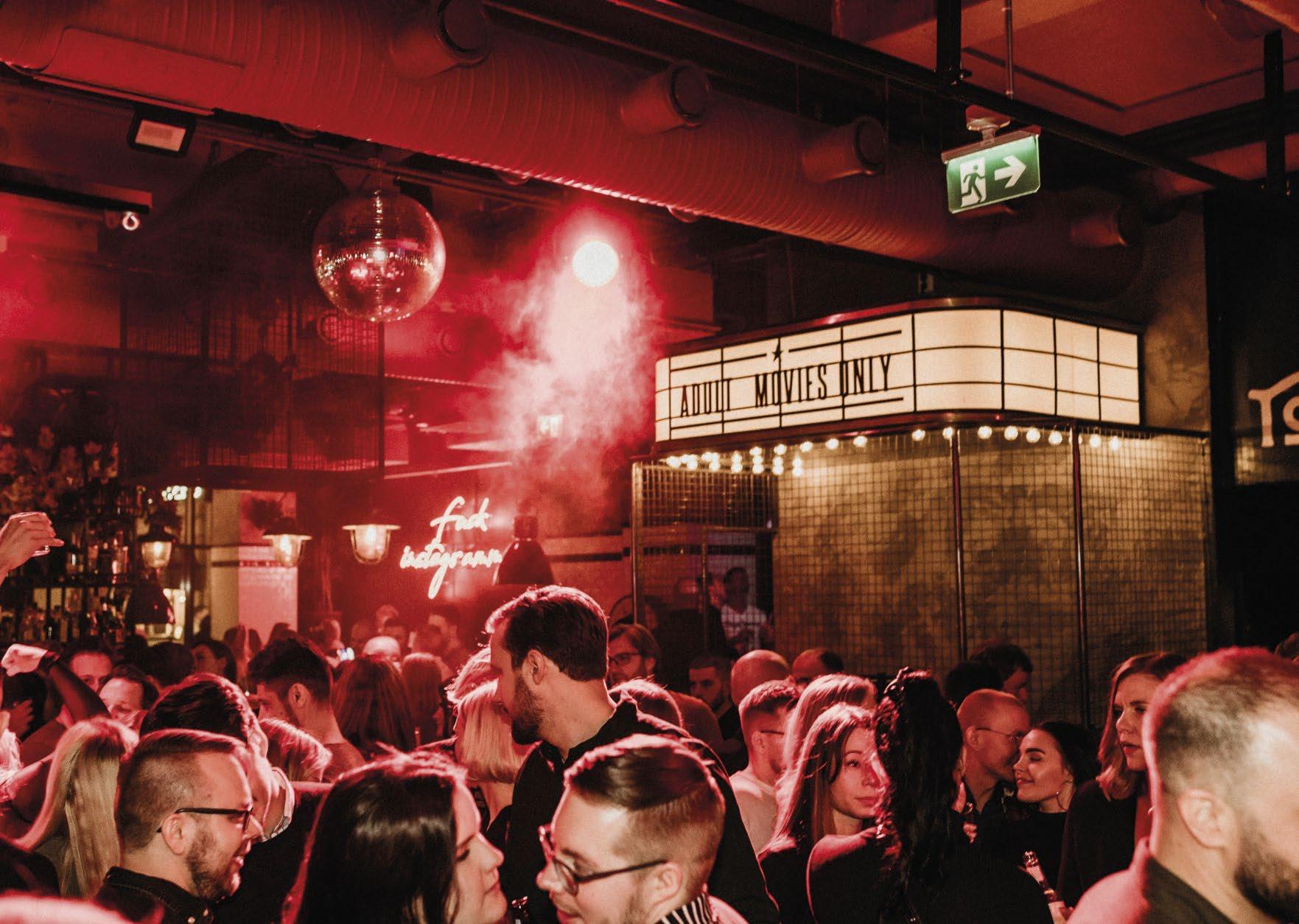
Thank you. Thank you. Thank Looks amazing! Looks amazing! Looks amazing!
oasis
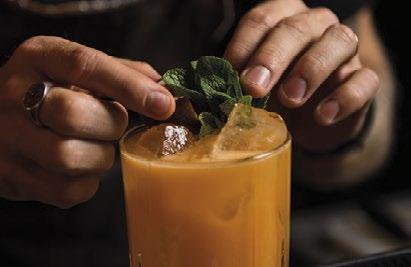
Inspired

to
Welcome
InternationalHelsinki’s
by New York’s Meatpacking District. We reach out to all people who have
dreaming of a
end but
to
to party. Butchers is a bar for those
love to drink high-quality cocktails in
early
of the evening and for those who enjoy the heartbeat of an international standard nightclub,
the evening sun has passed under the horizon.
meat at Butchers! Uudenmaankatu 16-20, 00120 Helsinki Scan the code & connect with us!
been
high
down
earth place
who
the
hours
when
Let’s
The Best Football Club in Finland
31 Finnish Championships
14 Finnish Cups
HJK HOME MATCHES IN 2022 – WELCOME!
Sat 2.4. 15:00 HJK vs Honka
Sat 23.4. 15:00 HJK vs Inter
Sun 8.5. 18:30 HJK vs Ilves
Tue 17.5. 18:00 HJK vs Lahti
Sun 22.5. 18:30 HJK vs Haka
Sat 18.6. 17:00 HJK vs Oulu
Sat 2.7. 17:00 HJK vs KuPS
Sat 16.7. 17:00 HJK vs VPS
Sat 30.7. 17:00 HJK vs IFK M
Sun 28.8. 18:30 HJK vs SJK
Mon 5.9. 18:00 HJK vs HIFK
Tickets: HJK.fi/tickets
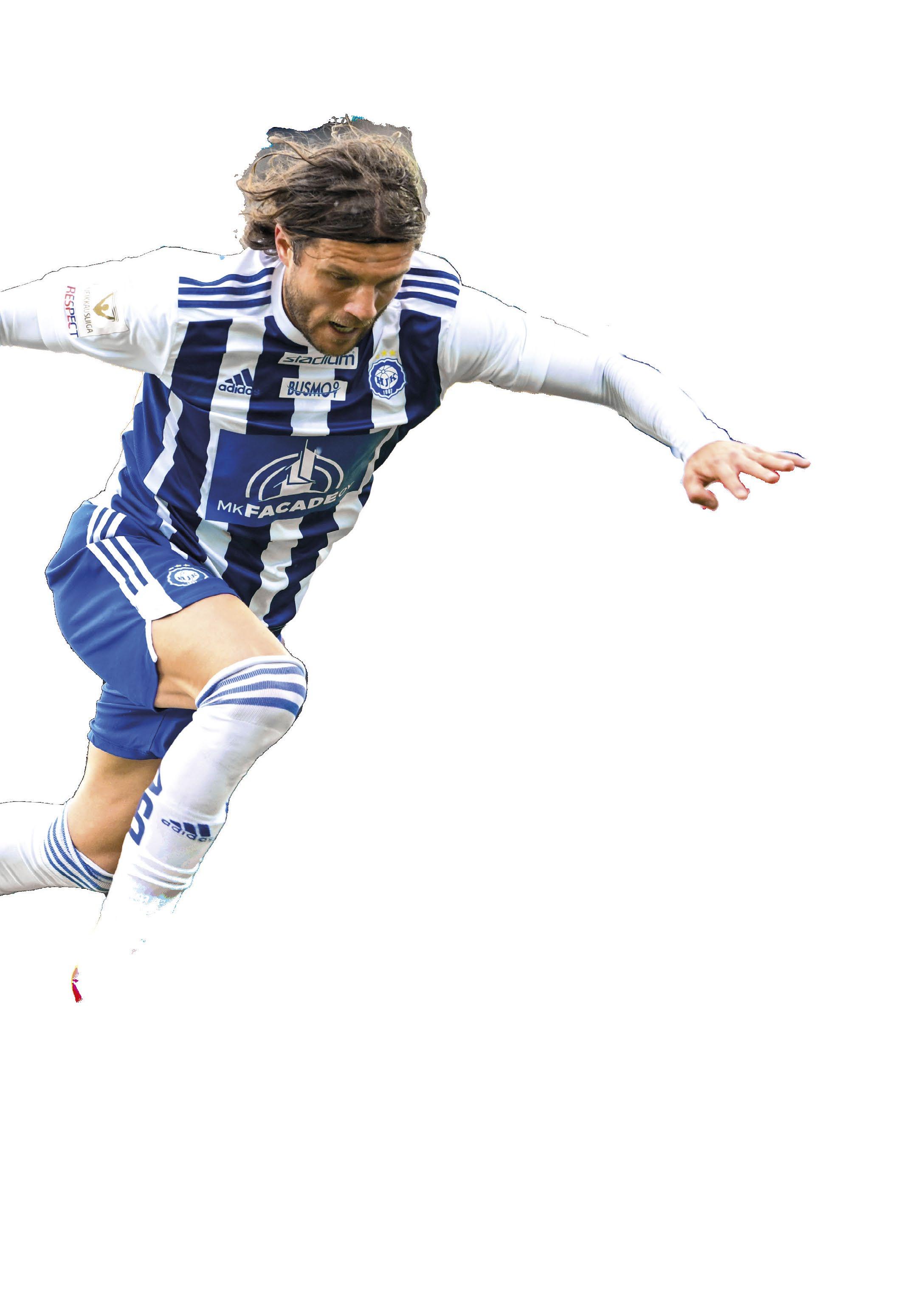 HJK HELSINKI – BOLT ARENA, URHEILUKATU 5, 00250 HELSINKI – HJK.FI
#56 Perparim Hetemaj
HJK HELSINKI – BOLT ARENA, URHEILUKATU 5, 00250 HELSINKI – HJK.FI
#56 Perparim Hetemaj







































 Korkeasaari Zoo is open all year round daily from 10 am. There are restaurants and kiosks on the island, or you can bring your own food and have a picnic. You’ll find a free map at the entrance to guide you through your visit.
Korkeasaari Zoo is open all year round daily from 10 am. There are restaurants and kiosks on the island, or you can bring your own food and have a picnic. You’ll find a free map at the entrance to guide you through your visit.
 mAyor of eSpoo
mAyor of eSpoo






































































 HJK HELSINKI – BOLT ARENA, URHEILUKATU 5, 00250 HELSINKI – HJK.FI
#56 Perparim Hetemaj
HJK HELSINKI – BOLT ARENA, URHEILUKATU 5, 00250 HELSINKI – HJK.FI
#56 Perparim Hetemaj





